a few books I am currently reading/re-reading and an encounter with a modern day wendigo
book suggestions for dendrophiles and a glimpse of a brief encounter I had when I crossed paths with someone choosing to embody modern western civilization's wendigo mentality
Hey everyone!
This post offers some of my thoughts on and some select pages from a few of the books I am currently reading as I do research for and meditate on my Stacking Functions in the Garden, Food Forest and Medicine Cabinet : The Regenerative Way From Seed To Apothecary series/future book.
I also wanted to share an encounter I recently had with what I will describe as a ‘modern day wendigo’.
First up this quadruple potency dose of tree-centric perspectives, science, medicine and poetry.
I highly suggest reading these books to all dendrophiles, aspiring permaculturalists, conservationists and science nerds out there.
I think I would suggest starting with Rooted, then To Speak for the Trees, then the other two in what ever order.
Here are pics of a few select pages I read recently from these books which resonated particularly strongly with me.
The above pages were from Rooted: Life at the Crossroads of Science, Nature, and Spirit by Lyanda Lynn Haupt.
Below is a page from The Healing Trees by Robbie Anderman.
I think Lyanda and Robbie must be some the same soul tribe ;)
I also just stumbled across this amazing Resource that Robbie put together on this website:
https://healingtreesbook.com/tree-links/
Re: The Power of Trees: How Ancient Forests Can Save Us if We Let Them by Peter Wohlleben
The book offers some extremely important scientific data regarding the roles of Ancient trees (also sometimes referred to as “Mother Trees”) in the social behaviors of trees, their capabilities to gather knowledge, learn from experiences, share that knowledge with neighbors and pass it on to their seedlings but it does have a somewhat carbon-centric ‘global warming’ narrative central theme to it (which I personally do not think is as beneficial to focus on as the author does).
It can be quite dry and the authors arguments presented in the book come off as somewhat anthropocentric at times (focusing on trying to explain why we need to save the last few intact patches of ancient aka “primeval”/”primary” forest in the interest of saving our own skin as humans). I understand the author is trying to appeal to the motivations of policy makers and forestry organizations, but I do personally find those kind of humanocentric fear based environmentalist ‘pep talks’ hard to stomach sometimes.
In my recently published book I sought to relay the message that in order to regenerate and restore the integrity of our society and the ecosystems (ecosystem restoration) outside of us, we must first engage in “ego-system re-story-ation”.
My wife describes my book as “a love letter to our Mother Earth and an invitation for the reader to fall back in love with the living earth” (I say ‘back in love’, as when we are children we are all in love with the Earth, present in the moment, appreciating the butterflies and hugging the trees).
It is my belief that neither fear of technocratic domination nor the fear of the potential impacts ecological collapse on our civilization/way of life (self-interested/anthropocentric priorities) can effectively compel humanity to change course, but rather it is love (for each other and the Earth) that will evoke the courage within us to change course before it is too late.
Or as Charles Eisenstein has stated “We are not going to be forced into Love, we are not going to be scared into Love, we are not going to be bribed into love, we are not going to be threatened into love”.
Only through consciously and willingly embracing this love within, knowing our own eternal spirit and being present in the moment to recognize that same eternal spark in all other beings, can we truly know peace, happiness, engaging in ‘ego-system re-story-ation’ and then eventually ecosystem restoration as well.
With all that being said, I still suggest reading Peter Wohlleben’s book as it offers powerful insights into the epigenetics, tree socializing/communication and the true nature of the conventional forestry industry.
Now, this feels like an appropriate time to share with you a glimpse of brief encounter I had when I crossed paths with someone choosing to embody modern western civilization's wendigo mentality.
In order to explain what I mean by a modern day “wendigo” and/or the “wendigo mentality” I present the following excerpt from a book that is very close to my heart called Braiding Sweetgrass (by Robin Wall Kimmerer).
I crossed paths with this person (shown below) who was embodying Wendigo thinking when I came across her post that involved several weak, irrational and greed driven justifications for Clear-cut logging operations in BC, Canada that target the last remaining primary forest there (where she lives, and where I grew up).
The person who wrote that post is Elizabeth Nickson (former mainstream “journalist” who used to write for TIME, was the European Bureau Chief of LIFE and has written for Harper’s the Guardian, Observer, Independent, Telegraph, the Sunday Times, the Globe and Mail etc etc)
Her post titled “The Epic Bullshit of Catastrophic Climate Change” made some relevant points regarding how at Dubai’s Cop 28, various plutocrats devised a slave system for the world and it rightly pointed out how silly and way off base the “global warming alarmism” has been over the years, however where I took exception was where it also suggested reasons why she believes it is a good idea (economically speaking) to continue to clear cut the last remaining primary (ancient) old growth forests in BC.
After reading the following parts of her post:
"Over time, the unmanaged forests became clogged with overgrowth, little trees like carrots pulled all the water from the forest floor, desiccated the soil and then pulled water from aquifers. The forests became tinder. And increasingly every summer, they explode in fire."
"Clear cuts are ugly. (but they are fire breaks)"
I commented, saying:
There are many fallacious, hubristic and anthropocentric assumptions built into the perspectives you described above.
Old growth biodiverse forests are forest fire resistant, logging industry planted monoculture "forests" are a tinder box of kindling.
Old growth forests retain water in the soil and propagate natural precipitation patterns (through evapotranspiration and rain drop nucleation via releasing pollen).
Logging primary forests does not help prevent forest fires, it increases the risk of severe forest fires exponentially.
https://www.esa.org/blog/2021/08/logging-increases-risk-of-severe-fire/
Humans tend to arrogantly assume that because we possess the ability to displace large amounts of matter using our messy machines that we possess the level of intelligence required to be able to micro-manage ecosystems in a beneficial way. At best, we can serve as part time co-creative allies in an ecosystem. Our attempts to control said community of life (and engage in an adversarial/commodification relationship with facets of life within said communities) overtly is not only detrimental and an exercise in futility, it is also in essence waging a war on ourselves.
Above you said "In British Columbia, we had the largest industrial forest in the world, It paid for education and universal ‘free’ health care"
That is not something to brag about. Living in a place where we allow that which is biodiverse, rain pattern stabilizing, oxygen producing, beautiful and sacred to be commodified, pillaged and transformed into dead products (in the interest of propping up our corrupt economy and the technology addicted lives we have adopted) is something to feel disgrace and shame about, not pride.
Education you say, but what kind of education system?
One that suffocates our children with medical looking facemasks, conditions them to be afraid, offers them gender reassignment and coerces them to receive experimental mRNA injections so that pfizer can profit?
That education system?
You can keep it, thank you very much.
And do not even get me started on the "health" care system. (for more info on the wonders of our modern allopathic medical system: https://gavinmounsey.substack.com/p/exploring-the-true-nature-of-big )
You speak of "forest communities" as though the only type of community that can survive and thrive in the forest is comprised of people logging for profit. What about the indigenous peoples that lived in those forests for thousands of years before the Europeans arrived?
Is their lifestyle not exciting and comfortable enough for you?
Too much having to learn to feed yourself using your own two hands and not enough twitter and ipads?
Those "industrial forests" you mentioned were (and are) being managed by greed driven corporations and complicit corrupt government entities. (see: “The C-IRG: the resource extraction industry’s best ally” : https://briarpatchmagazine.com/articles/view/the-c-irg-the-resource-extraction-industrys-best-ally for more info ) These are the same types of thugs that were sent in to crush the peaceful protestors in Ottawa.
Are these the types of uses of your tax money that you support Elizabeth?
Speaking of Asian Cartels, you may want to take an honest look at where much of the pulp we harvest from those old growth forests is going.
Since 2000, Canada has lost more than 19.6 million hectares of primary forest, the third highest rate of intact forest loss in the world after Brazil and Russia. B.C. saw by far the biggest decline in tree cover of any province, losing more than 8.5 million hectares.
Much of that loss has been due to the pulp and paper industry. Roughly 40 per cent of the trees cut in the province every year end up in a pulp mill, according to data collected by Canopy, a Vancouver-based organization that works with over 900 major brands to create so called "sustainable" forestry supply chains.
The pace of loss comes as decisions over Canada’s forests are increasingly being concentrated into the hands of one private company — Paper Excellence. Recently, the company acquired Resolute Forest Products, making it the largest forestry company in North America. Paper Excellence now controls 22 million hectares of Canadian forests and has ownership over 37 pulp and paper mills across Canada, the U.S., France and Brazil.
Paper Excellence has said between 10 and 14 per cent of the wood feeding its mills comes from old-growth trees.
The people behind and/or associated with Paper Excellence have a pattern of using thickets of corporations, including tax havens, effectively shielding transactions and assets from public and government scrutiny.
Freedom of information requests revealed the origins of some of the company’s past financing, some of which was facilitated by the China Development Bank, which is owned by the Chinese government.
Leaked records and insider accounts also show that Paper Excellence, appears to have been closely — and secretly — co-ordinating business and strategy decisions with Asia Pulp & Paper, one of the world's biggest pulp-and-paper players, which has a track record of environmental destruction.
Capitalism is an unnatural human concept (that is based on an inaccurate and outdated view of life and evolutionary processes). It is a model based on the inaccurate view that in nature competitiveness, 'survival of the fittest' and adversarial relationships are the norm. Modern science and ecological studies have shown us that when we take a closer look symbiosis, interdependence, and cooperation are in fact the norms when it comes to relationships between various organisms in nature. Capitalism (and its ugly offspring "consumerism") are systems of thought that do not align with natural law. They amount to ways of perceiving and interacting with the world that result in parasitic and not symbiotic relationships with each other (as humans) and with the rest of nature as a whole.
Our economy has become one based in waging a war on nature (pillaging her body to facilitate the ‘perpetual growth’ model that capitalism is based upon). This has led to an exponential loss of habitat available for land mammals, and almost half of these have lost 80% of their range in the last century. The scientists found billions of populations of mammals, birds, reptiles and amphibians have been lost all over the planet, leading them to say a sixth mass extinction has already progressed further than was thought. Nearly half of the 177 mammal species surveyed lost more than 80% of their distribution between 1900 and 2015. Data indicates that beyond global species extinctions Earth is experiencing a huge episode of population declines and extirpations, which will have negative cascading consequences on ecosystem functioning and services vital to sustaining civilization.
Thus, if we wish for our modern civilization to continue (and seek to leave a world worth living in for our children) we must abandon ideologies and belief systems (such as capitalism) that teach people that the acquisition of material wealth, competition rather than cooperation, and the endless commodification of aspects of nature is what we should strive for as individuals, organizations, communities and nation-states. It is impossible to cling to unnatural concepts like capitalism while simultaneously claiming to care about the future of our children, the integrity of the ecosystems and while claiming to want to help create a more sustainable and equitable society in the here and now.
Investing our time and energy in humanocentric systems of thought is a path of stagnation which comforts our ego but does not honor the truth of what we have learned about nature in the past century, nor does it serve to unlock our true potential as human beings. Through embracing humility and reverence, rather than self importance and anthropocentrism we can lend our sentience and free will towards a meaningful path of symbiogenisis between humanity and the many other beings who call this living planet home.
We moved past the point where "sustainability" was a viable and honorable course of action long ago.. what we must strive to put all our energy towards now goes a step beyond just 'sustaining' our toxic way of living, what we are called now to do is protect what is left of mature ecosystems and become agents of Regeneration.
When your grandchildren see images of the towering, wise and majestic trees that once were, and ask you what you were doing when they cut down the last old growth trees what will you tell them?
For more information on what logging in BC really looks like for "forest communities" : see https://gavinmounsey.substack.com/p/death-by-a-thousand-clearcuts
"When the last tree has been cut down, the last fish caught, the last river poisoned, only then will we realize that one cannot eat money."
Elizabeth’s response :
“Like thousands in BC, Gavin, I own 20,000 trees, and more than two dozen old growth. B.C. Is 6% developed. And the forest were managed well.”
My response:
"Owning" trees says nothing about whether or not you respect them and are a good steward and co-inhabitant with those beings. There are some on Earth that claim to "own" other human beings, but obviously that claim is not something worthy of admiration nor bragging about.
First of all, I just want to say that I have loggers and foresters in my family. My grandfather was a forester in the Vancouver and Whistler areas (his strategic zoning efforts were instrumental in creating/protecting places like Lost Lake Park in Whistler as well as the Cheakamus Canyon Old Growth Trail, and parks/trails all through RMOW and the Sea to Sky corridor) so I know the difference between logging based on ignorance, greed and shortsightedness, and the type of logging that creates jobs, nurtures human communities, while also protecting biodiversity and ancient forests. I work in landscaping, so sometimes we have to cut down trees as part of our job (as a last resort), I work with arborists regularly (many of which used to be professional loggers) so the act of cutting down a tree and the dynamics involved in the logging industry (and those that choose to work in that industry) are dynamics of which I have intimate knowledge.
My critique of your fallacious statements about clearcutting in your post above were clearly pertaining to old growth (primary, or "ancient") forests (and not a generalized statement about all forms of logging, which can include logging re-planted monoculture plantation forests, of which there are a great many).
In your post above you threw out some vague sob stories about how "Forested communities died" and "100,000 families lost their livelihood."
Thus, we will now deconstruct the myth of the hypothetical ‘poor logger man with 5 kids and a grandma that needs surgery (who feels forced to clear cut 1000 year old trees)’. In order to do this, I will first re-iterate the fact that there are plenty of logging jobs in bc that do not target the last remaining old growth (ancient) temperate rainforest stands IN THE WORLD.
Saying "B.C. Is 6% developed." is an intentionally vague statement that says nothing about how much of the original intact (unlogged) forest still remains.
Since there is only 2% of the original old growth (primary/ancient) temperate rainforest left in BC (which is the only section left in the world that has not been clearcut) you can understand that we have been chopping down very old trees and replanting monocultures of young ones for quite some time now. This means that there are plenty of re-planted timber forests on Vancouver Island to be logged that are not sensitive ancient rare ecosystems with the last original trees living in them.
The difference is that logging corporations and government entities make about 4 times as much money chopping down the ancient trees, as opposed to the replanted ones. When a logger takes a job to cut down primary old growth they often have to be willing to drive past the hundreds of indigenous people and other forest protectors attempting to block the roads and into “the exclusion zone” (which is the area being guarded by militarized RCMP with submachine guns, tasers, mace and zap straps) to chop down the very last thousand year old trees in existence on the Island. They know exactly what they are doing.
Now it is also worth noting that loggers are not inept, helpless, stupid people that are unable to put their significant skills with machines and physical endurance to use in one of many other jobs that are available in that region (that do not involve the destruction of the last old growth trees).
They have a choice. Even if that was the only possible job available to them (which it isn’t) they still have a choice.
Your statement that "the forest were managed well." is ridiculous.
"Well managed" according to who?
You?
Logging corporation thinktanks or government revolving door regulators and other shills?
"Managed" with what goals in mind? Profiteering with all other considerations as secondary? If so, you may be right.
Chopping down 98% of the ancient forests that will take centuries to millennia to regenerate to their original state, resulting in massive biodiversity loss, landslides, flooding, soil erosion and the decimation of that which is sacred, beautiful, nurturing to the soul and our great grandchildren's natural heritage is "managed well" to you? If that is how you define "managed well" I suppose you are someone that would be content living in an Ecumenopolis.
In closing I will share an excerpt from an essay I feel is pertinent and speaks to the fork in the path we face at this moment in time as a species, here and now.
“Do we really need to produce more and more lumber, energy and money forever? Does it really contribute to human well-being? Bigger houses, more weapons, more stuff, the whole developmentalist technological program that separates us ever-further from life and matter… what does it serve? Ultimately, the “solution” to the ecological crisis is not technical. It comes from reclaiming basic values and changing our relationship to nature.
Commenting on the clearing of forests to build solar arrays, Tellamy wrote, “It’s totally antithetical to the goals of conservation.” Yes. The environmental movement needs to return to its roots. Conservation does not mean to “use more slowly” or to “save for later.” What the word really means is to serve with. To serve together. To serve what? To serve life.
It is a rhetorical error to frame environmentalism in any other way than to make it about love of nature, love of life. No one becomes an environmentalist because of all the money they will save. No one calculates their way into love. And the changes that we will need to make to restore earth’s aliveness from its current depletion will require a degree of courage and sacrifice that comes only from love. We will not be coerced or bribed into them.
A veteran activist once told me of a meeting he attended in the 1980s in which a group of leading environmentalists decided to adopt the term “sustainability” into their core lexicon. “We wanted to sound scientific,” he said. “We didn’t want to use words like ‘love’ or ‘precious’ and be dismissed as tree-huggers. We wanted to give people a rational, hard-headed reason why we should protect nature. We thought that appealing to the beauty and sacredness of nature wouldn’t reach the people who were destroying it, so we tried to make it about their self-interest instead.”
Around the same time, global warming entered the awareness of the environmental movement, growing over the years to become its defining issue. At first, global warming (now called climate change) seemed a boon to the movement. Now we would be able to force corporations and governments to do the things we’d always wanted, appealing not just to sentiments about nature’s magnificence, and not just to concerns over the health of some subset of people downwind, but to the survival of civilization itself. One no longer need be a nature lover to support the aims of environmentalism.
Let that last statement sink in. One no longer need be a nature lover to support the aims of environmentalism.
The result is that environmentalism has been hijacked by people and institutions who are not nature-lovers. We see where it leads: nature dies in the service of “sustainability.” Forests are cut for solar farms. Landscapes are sacrificed to pit mines to extract lithium, cobalt, silver, rare earths, etc. for decarbonization. There is an awful lot of money in the sustainability industry. It is the same story as before. Meanwhile, we neglect the priorities that are highest from the Living Earth perspective.
All is not lost. There is in fact a way to “save the world.” I put it in quotes, because ultimately the choice we face is not about our survival, it is about what kind of world we choose to live in. One vibrant with life? Or a gigantic strip mine / waste dump / parking lot? So let us say instead, there is a way to regenerate a world vibrant with life. The way is to enact a reverence for life in all its forms. This translates to three priorities for environmentalist attention and funding.
The first recalls traditional conservationism. We must absolutely protect any remaining intact ecosystems from development, whether it is for oil & gas, minerals, lumber, ranching, suburbs, dam reservoirs, industrial-scale fishing, or biofuels. The few remaining intact organs of Gaia are its reservoirs of biodiversity and its memory of health. Note well that to “protect” does not usually mean to fence off and keep humans away. In fact, right human participation can enhance the health of ecosystems when those humans have intimate understanding and reverence for the places where they live.
𝗜 𝗱𝗼 𝗻𝗼𝘁 𝘄𝗼𝗿𝗿𝘆 𝘁𝗵𝗮𝘁 𝗼𝘂𝗿 𝘀𝘆𝘀𝘁𝗲𝗺 𝗶𝘀 𝗻𝗼𝘁 𝘀𝘂𝘀𝘁𝗮𝗶𝗻𝗮𝗯𝗹𝗲. 𝗜 𝘄𝗼𝗿𝗿𝘆 𝘁𝗵𝗮𝘁 𝗶𝘁 𝗶𝘀. I am afraid that we can continue to lay waste to the living earth, indefinitely, ending up on a concrete world, so chronically ill physically and mentally that we must incorporate technological assistance into our very brains and bodies. I am afraid we will compensate for the lost connection to a living world with a burgeoning array of virtual substitutes, digital realities, and online adventures, tragically seeking something that we come to forget we ever had. Do you remember how loud the frogs were? Do you remember flocks of birds extending from horizon to horizon? Do you remember the clouds of fireflies that lit up the nights of my father’s youth? I am afraid we will forget we ever lived in such wealth and make do instead with Mario Cart. We are already far down this path to a concrete world, and far down the path of learning to cope with it.
The ecological crisis and the spiritual crisis that we call “mental health” share a common source: denial of earth as a living being, worthy of love, worthy of service.”
In response Elizabeth said:
“You are an idiot and under educated and blocked. This is an abuse free zone, and stupidity is abuse.”
Other responses to my original comment included words spit from the mouth of a sadly misinformed and callously commodity driven “Timmy Taes” who posted a comment stating:
“Gavin: Trees are just big plants. Trees hold onto nutrients that could be released into the environment sooner e.g. grasses of the Plains. I'm from Nebraska. Cottonwoods grow in the river and creek valleys otherwise it is all grasses (crops now). These are harvested every year for human and animal consumption.
Trees are the Uncle Scrooges of the environment. They hang onto the nutrients like a miser counting his gold.
Grow the trees. Cut them down. And grow them again if your environment is good for that enterprise.
But trees are NOT some holy fecking plant.”
Wendigo thinking personified in a self-described “hippie”, how sad and what a sign of the times we are living in.
My response to him was:
Your anthropocentric and arrogant attitude which attempts to use the word "plant" as though it is a derogatory and "less-than human" being label says a lot about your current understanding of this world, the fellow beings you share it with, and your place within it as a human being. Those that covetously claim that sentience is unique to human beings only serve to illuminate their own ignorance as many other beings (both on earth and beyond) are also sentient.
Yes, trees are plants, but that is like saying "humans are mammals", it does not indicate that one being is more deserving of respect than another when we label them in groups and attempt to arrogantly look down on them through the limited scope of human intellect.
The idea that trees horde resources (as "Uncle Scrooges of the environment.") is ridiculous and represents a delusional statement made from a perspective of one that knows very little about forest ecosystems, soil science and all the exchanges of nutrients that occur between the atmosphere, the tree and the rhizosphere. Even a brief research excursion to learn the science of "Mother Trees" will illuminate how fallacious your statement about "greedy trees" is.
When you spit "trees are not some holy fecking plant" out, what you are exemplifying is the exact attitude of the colonial Europeans which got us to where we are today. Before the anthropocentric views of colonial imperialists arrived in what is now called North America, the trees were in fact seen as "holy" by the inhabitants of these lands (just as all beings were seen in this way equally). The indigenous peoples of this land cut down trees for what they needed to build shelter, canoes and tools, but never would they consider killing their brothers and sisters for profit (they thanked each tree for giving its life so they could have what they need to survive).
The history of the attitude (which you are exemplifying in your comment) which led to large scale deforestation , desertification and fresh water contamination is well documented here https://gavinmounsey.substack.com/p/the-rise-of-anthropocentrism-bright for those interested in learning more.
In reality, trees are tending, conscious beings. Science has confirmed that trees comfort, speak, move, beckon, befriend, listen and sing.
There are now many scientists who do believe that plants possess some form of sentience. That in fact they have intelligence, perception, thought and that their behavior is often altruistic. Many are surprised to find out that the truth, is, that like animals, plants communicate, feel, think and respond to their environment including interactions with humans… and similar to humans, plants actually reason. Here are a few of the links I found related to this.
https://www.plantbehavior.org/
https://www.ted.com/talks/stefano_mancuso_the_roots_of_plant_intelligence#t-811430
http://goodnature.nathab.com/research-shows-plants-are-sentient-will-we-act-accordingly/
So, even working within the constraints of the current scientific model, we are now learning that plants possess a far greater level of intelligence than was previously assumed, at the same time we are also learning that these intelligent plants are connected over large distances through vast networks of mycorrhizal communities. These communities of fungi which form a symbiotic relationship with the plants roots, also have now been shown to serve as a communication system between plants. Even plants of different species have been documented using this 'organic internet' to communicate directly with others, warning each other of impending aphid invasions and even sharing resources to a seedling in need.
Whether or not you acknowledge that such beings are just as sacred and holy as humans are, and deserving of our reverence and respect, is based on your worldview, and your willingness to open your mind and your heart (or keep it closed and encased in ego flattering ideas about humanity's place on this world).
In time, those who have repeatedly chosen the path of apathy, arrogance, greed, human exceptionalism, ego and willful ignorance will be given opportunities to learn the hard way. It is my hope that many humans will choose to embark upon a path of integrity, compassion, humility and reverence before our Great Mother Earth chooses to initiate the latter path of learning for our human family.
I share this with all of you now as I feel that what Robin Wall Kimmerer’s usage of the term “Wendigo thinking” aptly describes the attitudes and perspectives that were expressed in Elizabeth’s and Timmy’s comments above. I see such thinking as a symptom of a very sick society. The Wendigo sickness of always wanting more (regardless of the cost to our neighbors, human or otherwise) is contagious and it is spread through the institutionalized brainwashing that programs us to believe that perpetual economic growth (aka converting that which is living and diverse, into that which is dead, uniform and can be sold for money) and using our time on Earth to gather fiat currency is going to make us happy.
When I broach the topic clearcutting forests and/or lithium mining with people who place anthropocentric and material concerns as their highest priority and bring up the reality that indigenous people’s lived here for millennia without any money and lived lives fulfilling lives of purpose, some of them use the red herring tactic of pointing to isolated instances where specific indigenous tribes used to engage in the sacrifice of animals, human beings or some other unpleasant behavior. They say “what you want us to go back in time to living in mud huts and human sacrifices!!??”
My response to such two dimensional distraction tactics are to remind them that in truth, when examining the act of sacrificing living beings for irrational and/or nefarious reasons, we need look no further than the institutions and corporations that surround us now in the western world. Those are the institutions many of us champion as the bastions and exemplars of “civilized society”.
Westernized, so called “civilized” cultures sacrifice the old, the poor, the young and everything in between every day and in droves.
Bloodshed and sacrifice. All day, every day, industrial scale.
Factory farms, Old people care homes injecting them with deadly mRNA concoctions and getting the little kids to line up for the same injections (resulting in thousands of them dying needlessly).
We do not live in a “civilized society”. That is brainwashing. We live in a society that covets profits and intellect over compassion and intuition and a society that champions competitiveness and callous domineering while seeing kindness as weakness.
This is a very sick and savage society we live in in the western modernized world, it is just covered with an array of masks wearing smiling faces, re-assuring us all how advanced, impressive, safe and cared for we all are.
I will now share a few select pages from Charles Eisenstein’s Climate: A New Story that I feel speaks to and offers valuable insights regarding the subject matter discussed above.
I do not agree with everything Charles expresses in the book, but he makes some great points in it and I do think the book is worth a read.
In a presentation I recently recorded for a conference I will be presenting a talk at I talked about the permaculture ethical compass of “Earth Care – People Care – Future Care” and how when I was taking a look inward to contemplate how my purchases can serve to fund the deforestation of the Boreal Forest if I keep buying lithium and cobalt based technologies, I came to identify a part of my self that sought to find a way to justify continuing to buy said products (in the interest of perpetuating the material comforts and entertainment devices I have become accustomed to in my life).
That mentality I discovered within myself is also a form of Wendigo thinking.
Through seeing it beginning to take hold, I was able to do apply the antidote of compassion for my non human relatives in the Boreal and render that beginning of Wendigo thinking within me inert.
Let us now ask our selves a few questions in the interest of taking an honest look in the mirror in the hopes of assessing whether or not Wendigo thinking has begun to sink is gangrenous tentacles into our own perspectives and priorities:
Are there limits to industrial growth?
What kind of growth do we prioritize and feed into in our lives?
For me, if you are talking about the growth of cities (in their current format) and the technological/resource extraction infrastructures that maintain our modern way of living with obscene excess, comfort and waste… Yes there is certainly a limit.
If you ask me, considering that primary forests produce much of the oxygen we breath, they stabilize precipitation patterns and mitigate the harm of flooding events via holding soil together with roots, while also encouraging water to penetrate into the soil, then propagating natural precipitation patterns (through evapotranspiration and rain drop nucleation via releasing pollen) any conventional agricultural or other industrial resource extraction operation that is involved with chopping those primary forests down, is unacceptable, irrational, and in essence represents a sort of suicidal operation where we are destroying the very fabric of the ecosystems we depend on to survive.
If you ask someone like Elizabeth Nickson about clearcutting primary forests, she would likely tell you “It pays for education and universal ‘free’ health care.” So, to her, there is no limit to the growth of the logging industry, and chopping down the oldest most biodiverse forests is a good idea.
Thus, I now would like to invite you ask yourselves:
How much damage done to the environment/remaining intact ecosystems (in the name of living a life of comfort and propping up our top heavy technologically dependent civilization and technological addictions) is too much?
Is there no limit to how much is too much (if that damage is required in order to continue to allow us to live the way we do now, in perpetuity)?
Is there is a limit, how do we define it, and how should we strive to live in a way that respects that boundary?
I ask these questions in earnest and I do not claim to have the “right” answer to them. Please help us all to find clarity in this regard by sharing your own answers to these questions in the comments below.
I feel like there are a great many people that are stumbling along a path that essentially leads towards the final destination of an Ecumenopolis. The global scale city may be totally unfeasible (given the current mainstream human tech and finite resource extraction limitations) but this is never the less the unspoken intended final destination given the choices of a great many humans on the Earth right now. If we continue down the path headed for converting all of the wilderness left into dead, cold, uniform structures, products and human artificial habitat (cities) we may (and likely will) fall short of creating a Ecumenopolis and only end up with a planet that is maybe one quarter city and 3/4 dead wasteland, but it would nevertheless be a future I have no interest in living in nor playing a part in co-creating.
How about you?
Thus, I share the words above and below in the hopes it can light the same spark that dwells in my heart within others, and together, we can choose the soft and green path towards a shared future worth living in and passing onto future generations.
“Those who contemplate the beauty of the earth find reserves of strength that will endure as long as life lasts. There is something infinitely healing in the repeated refrains of nature — the assurance that dawn comes after night, and spring after winter.”
~ Rachel Carson, Author of Silent Spring


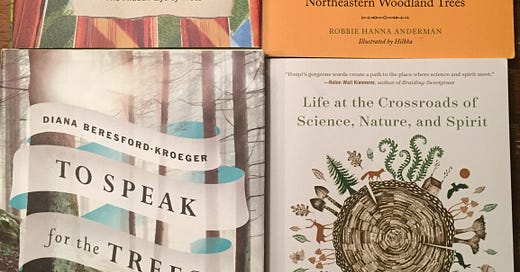



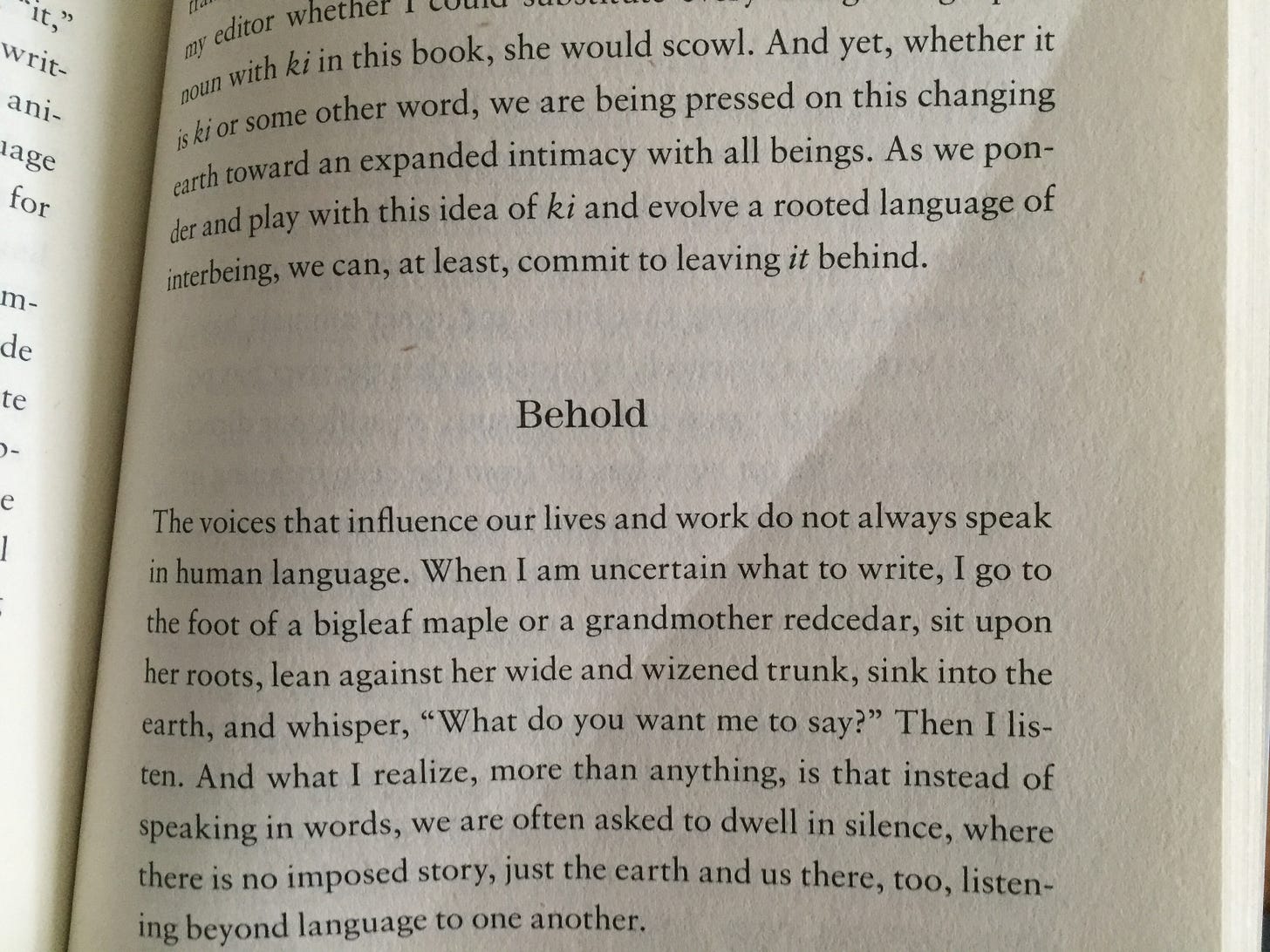
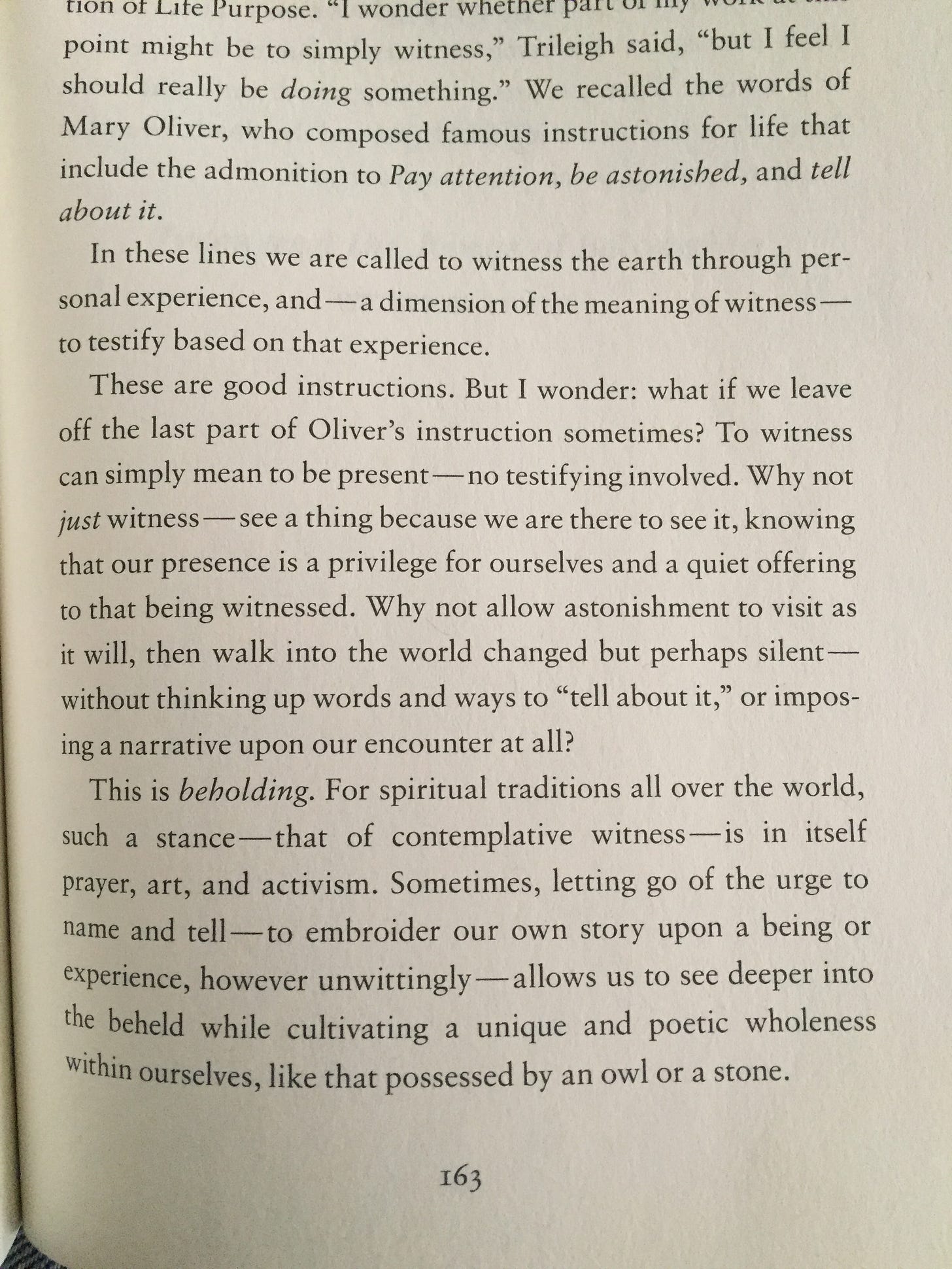
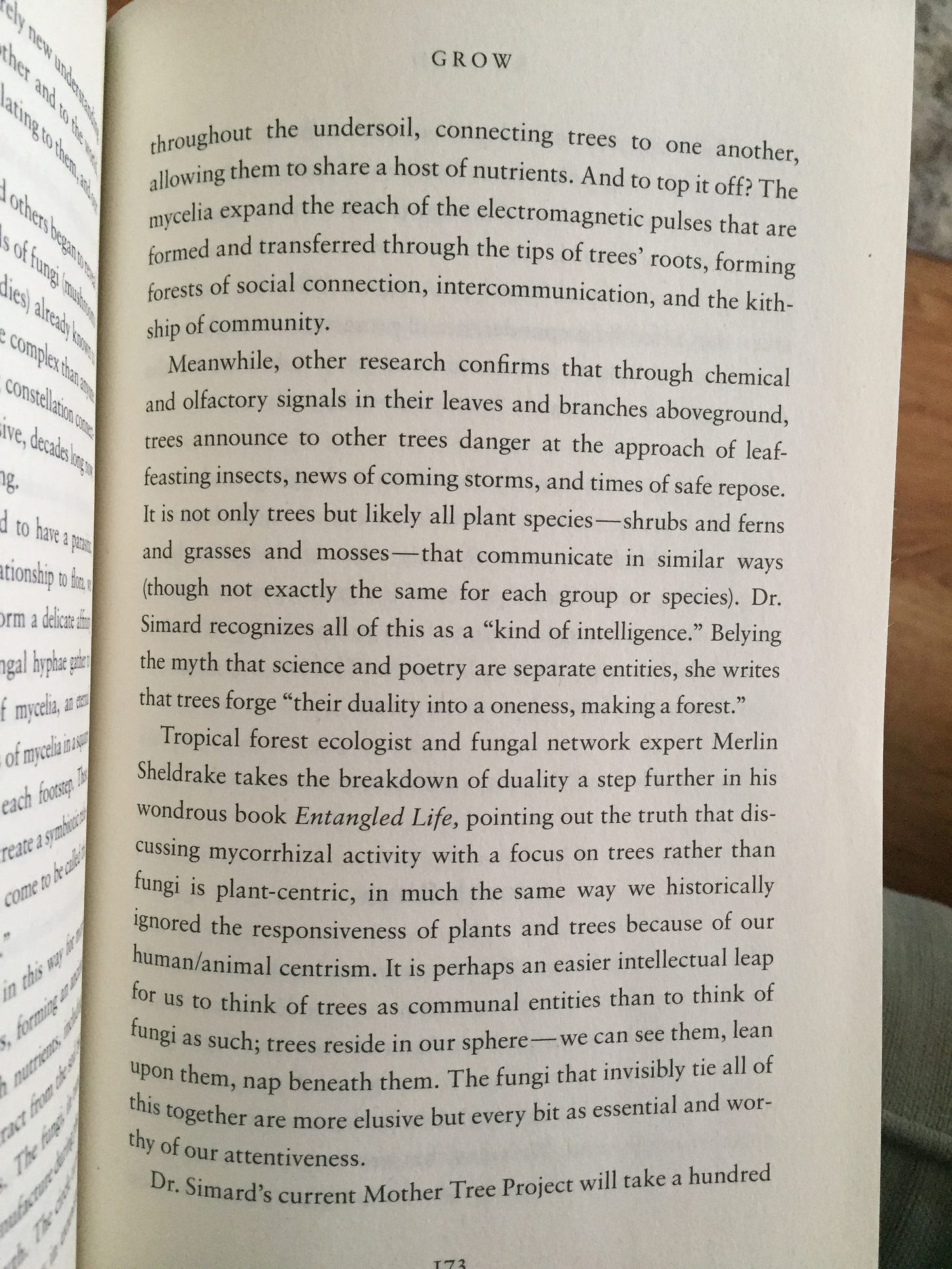
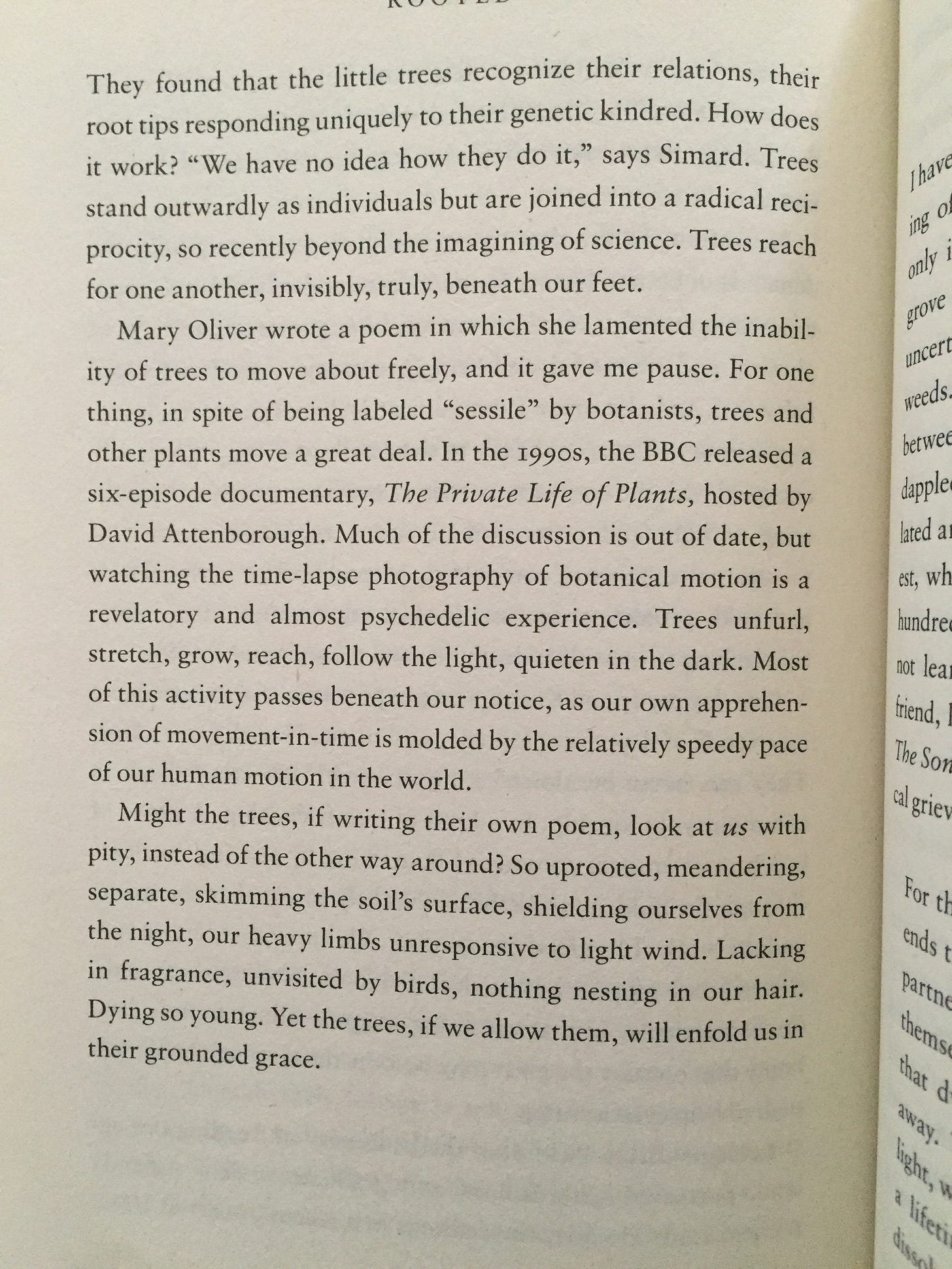
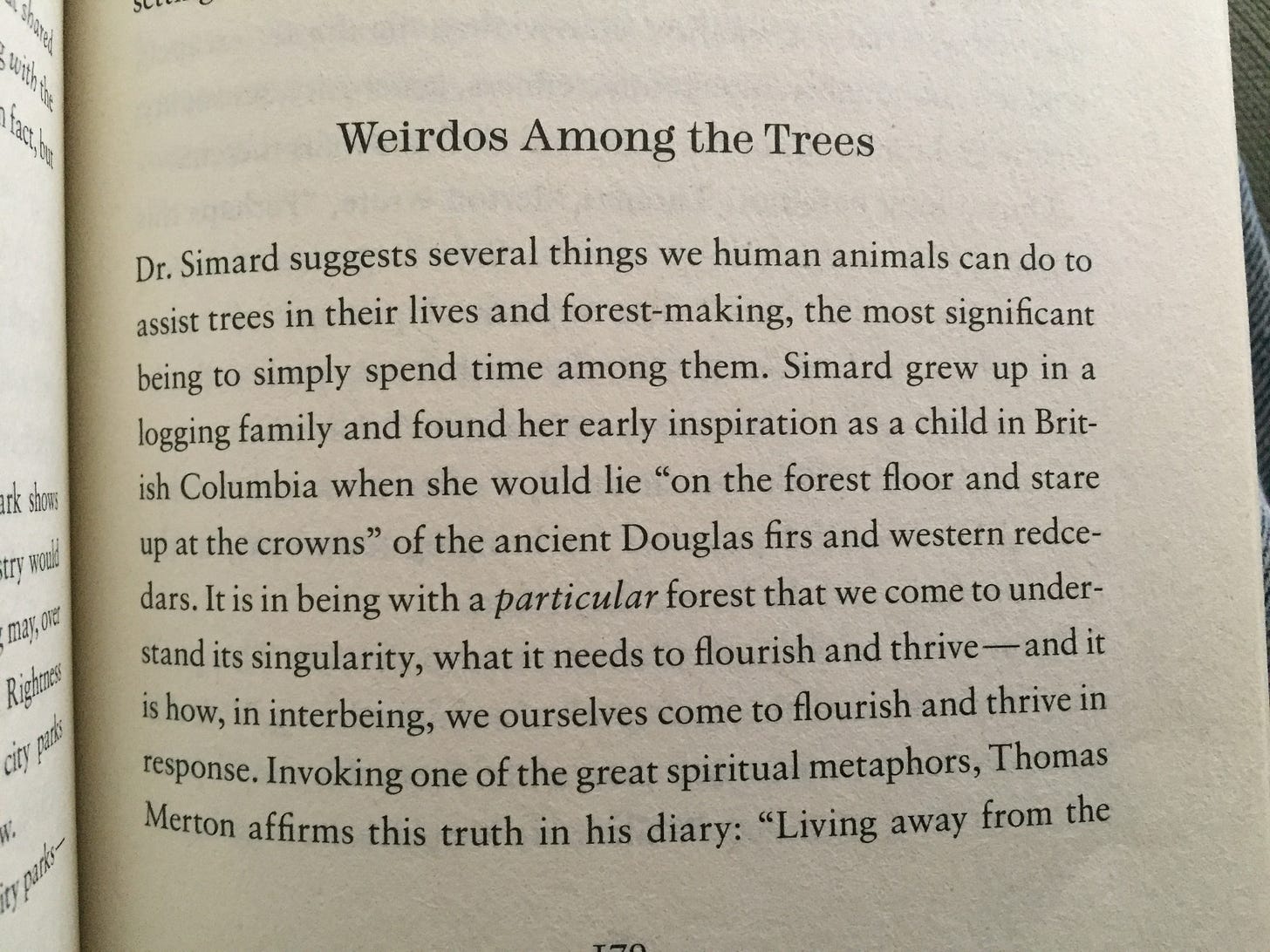
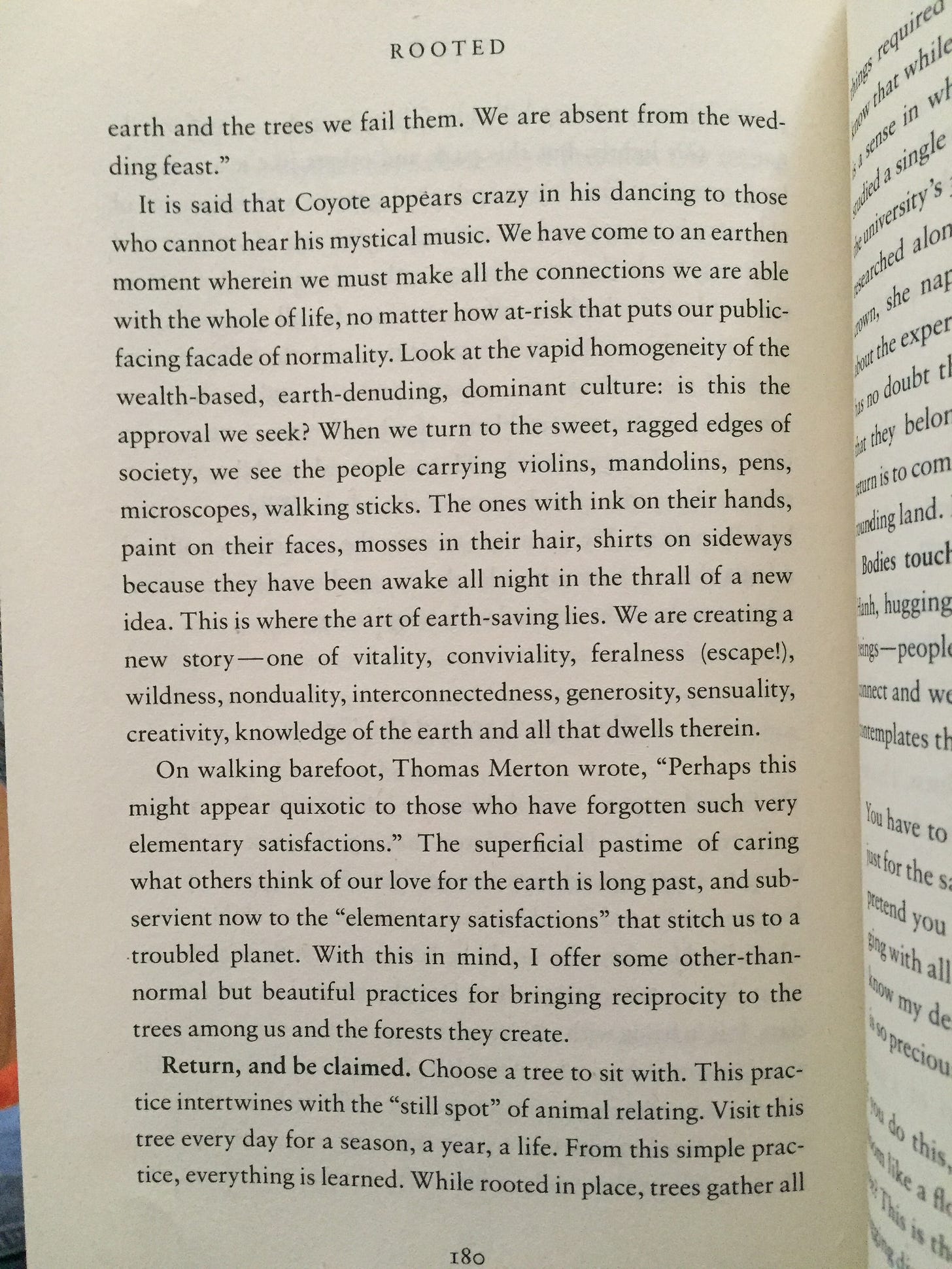
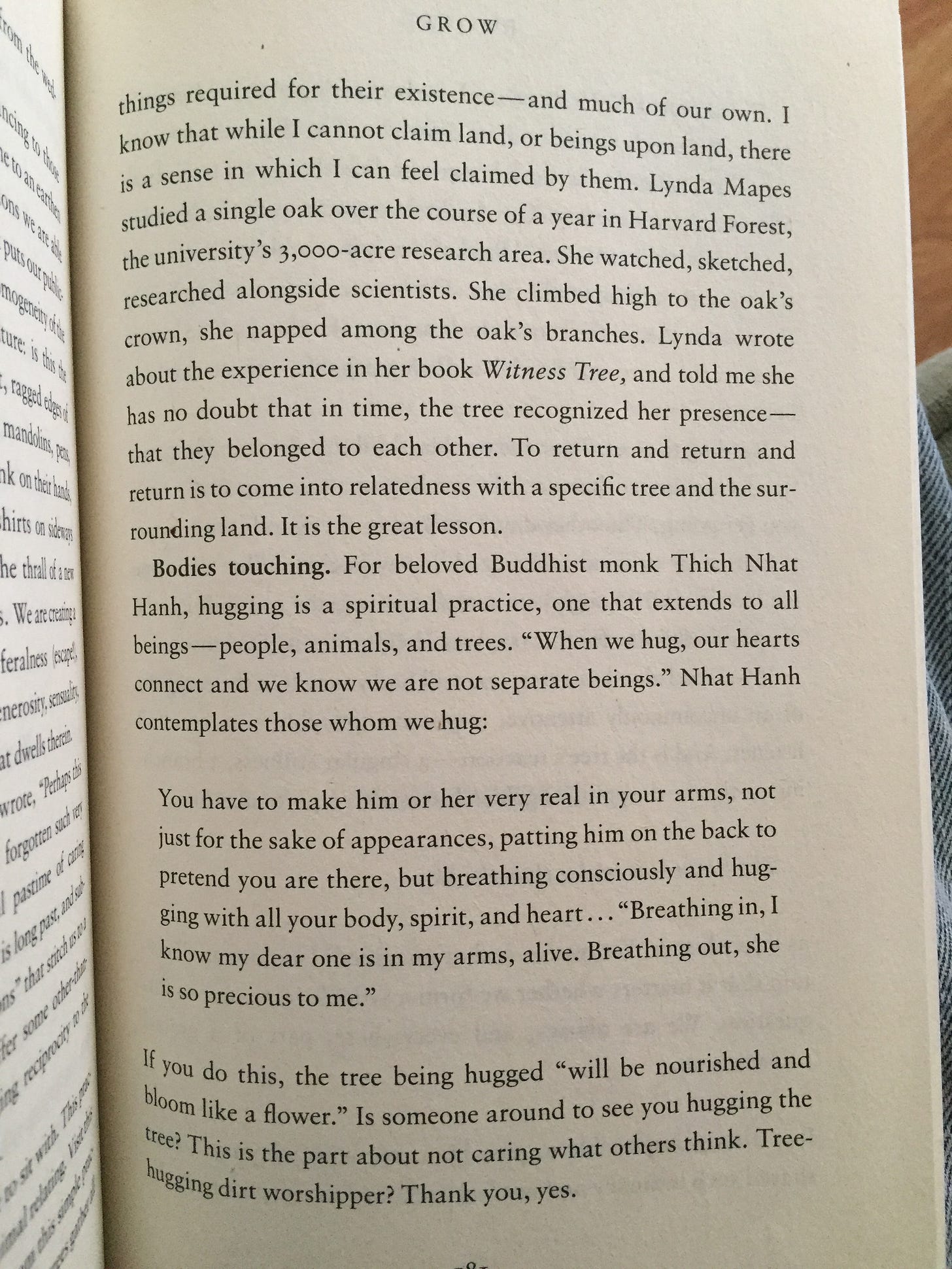
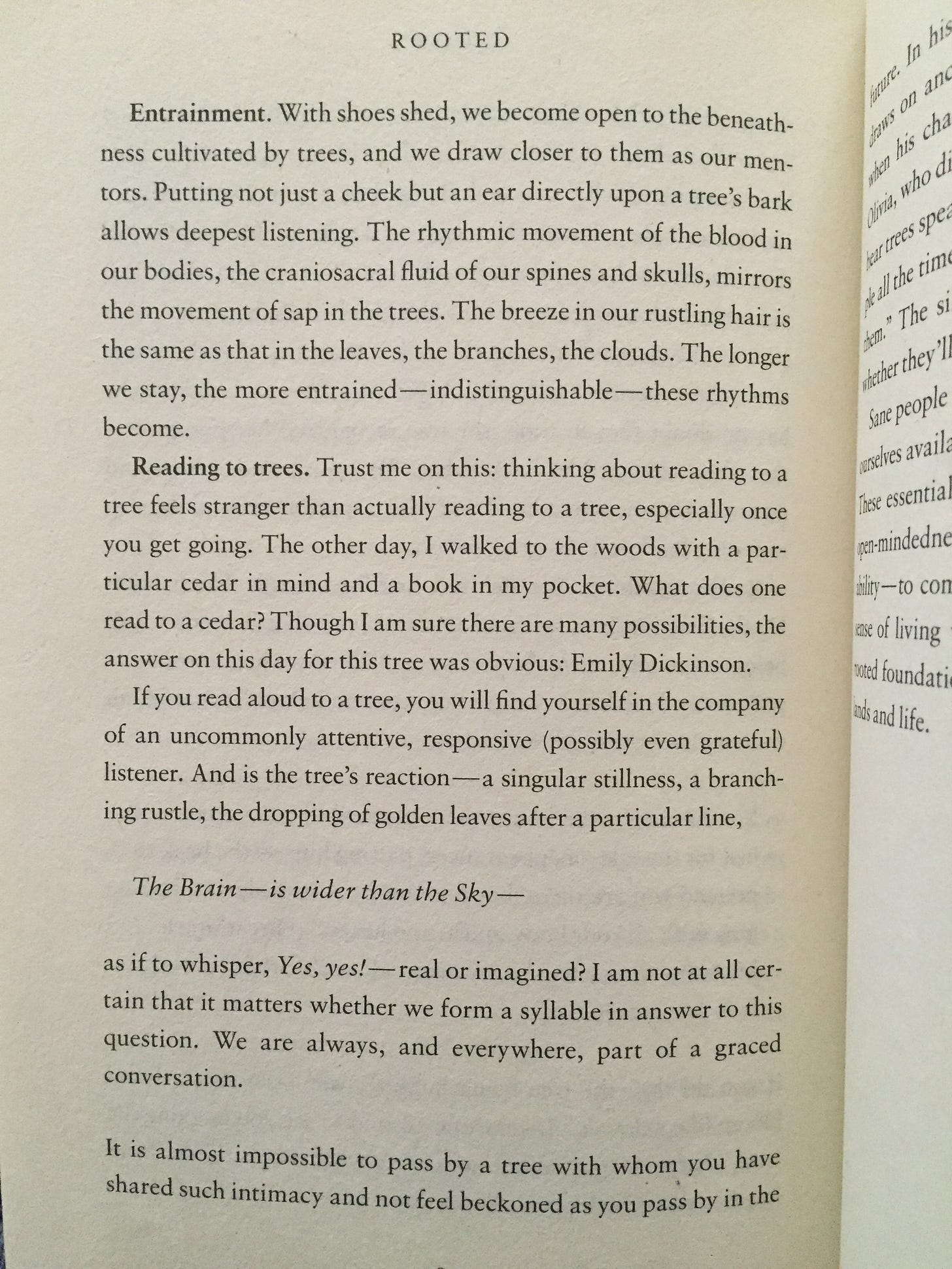
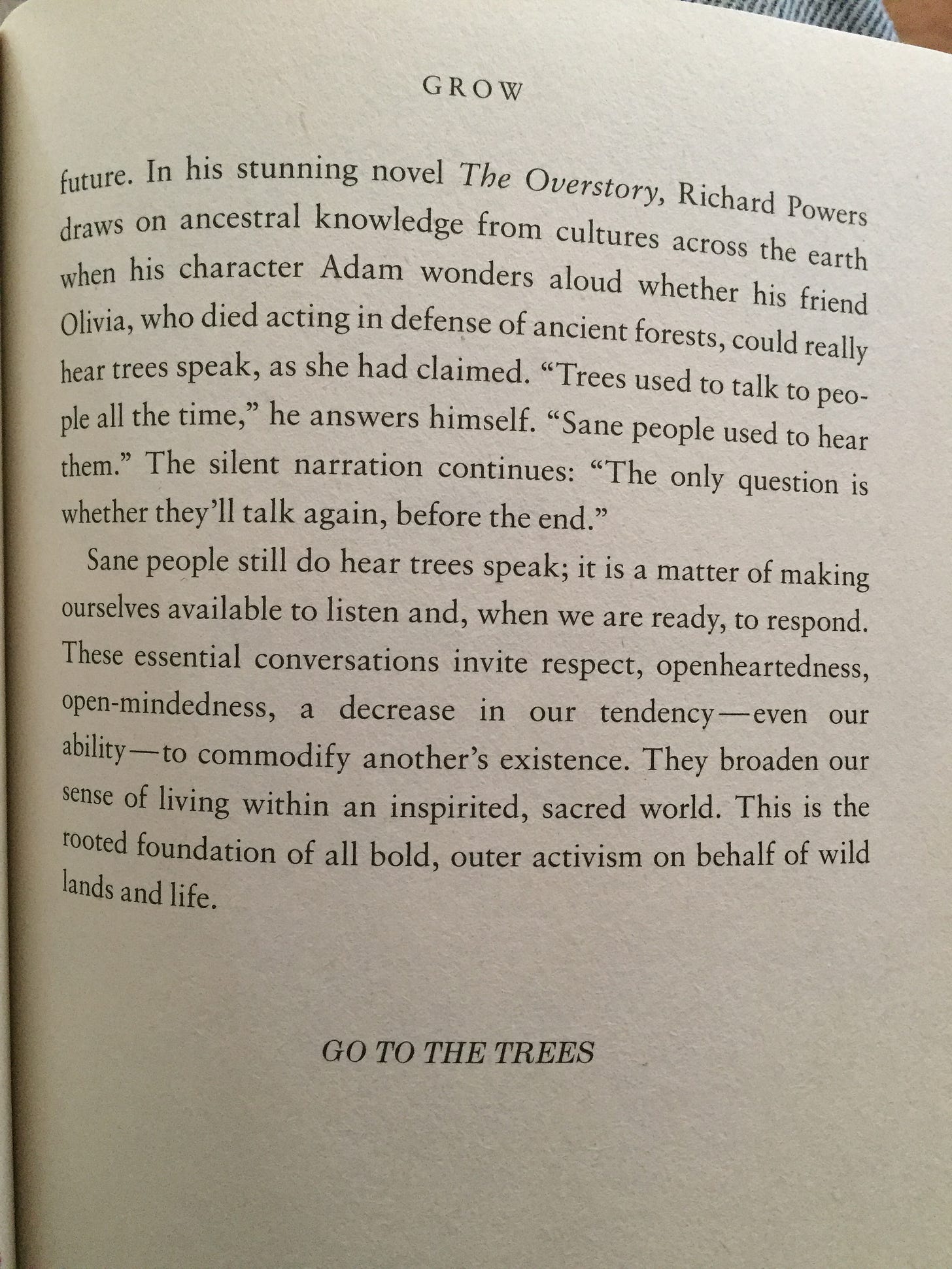
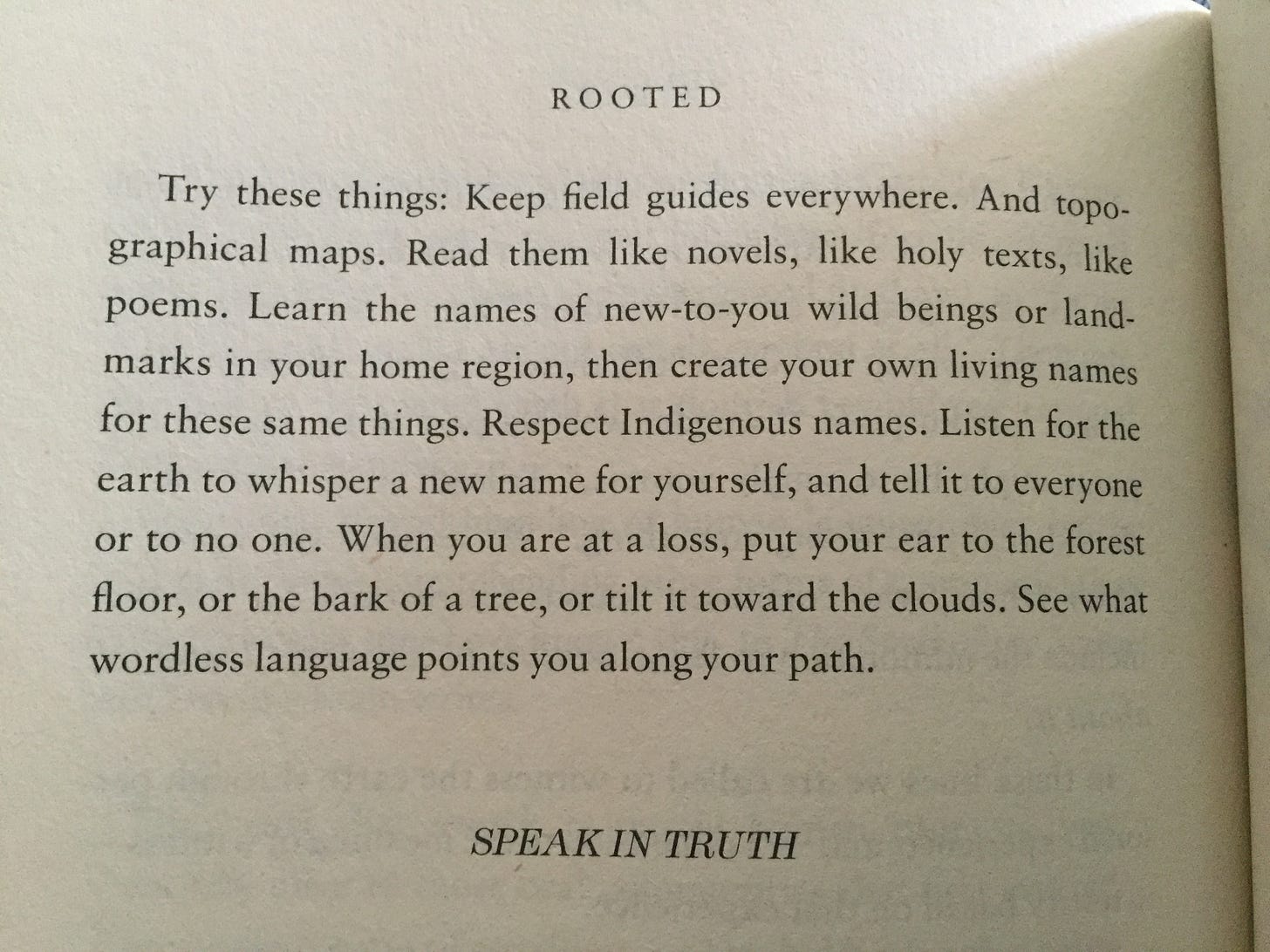
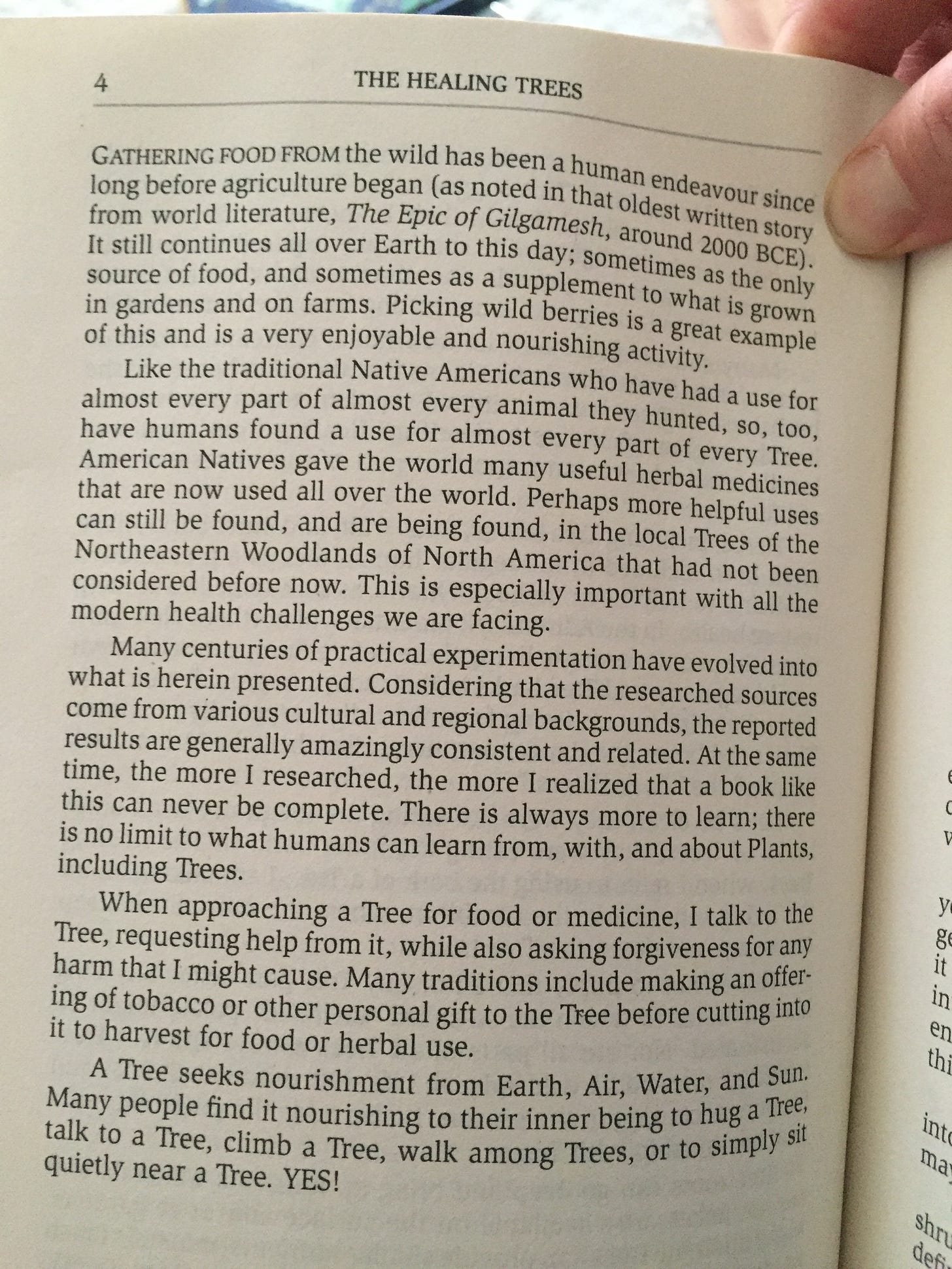
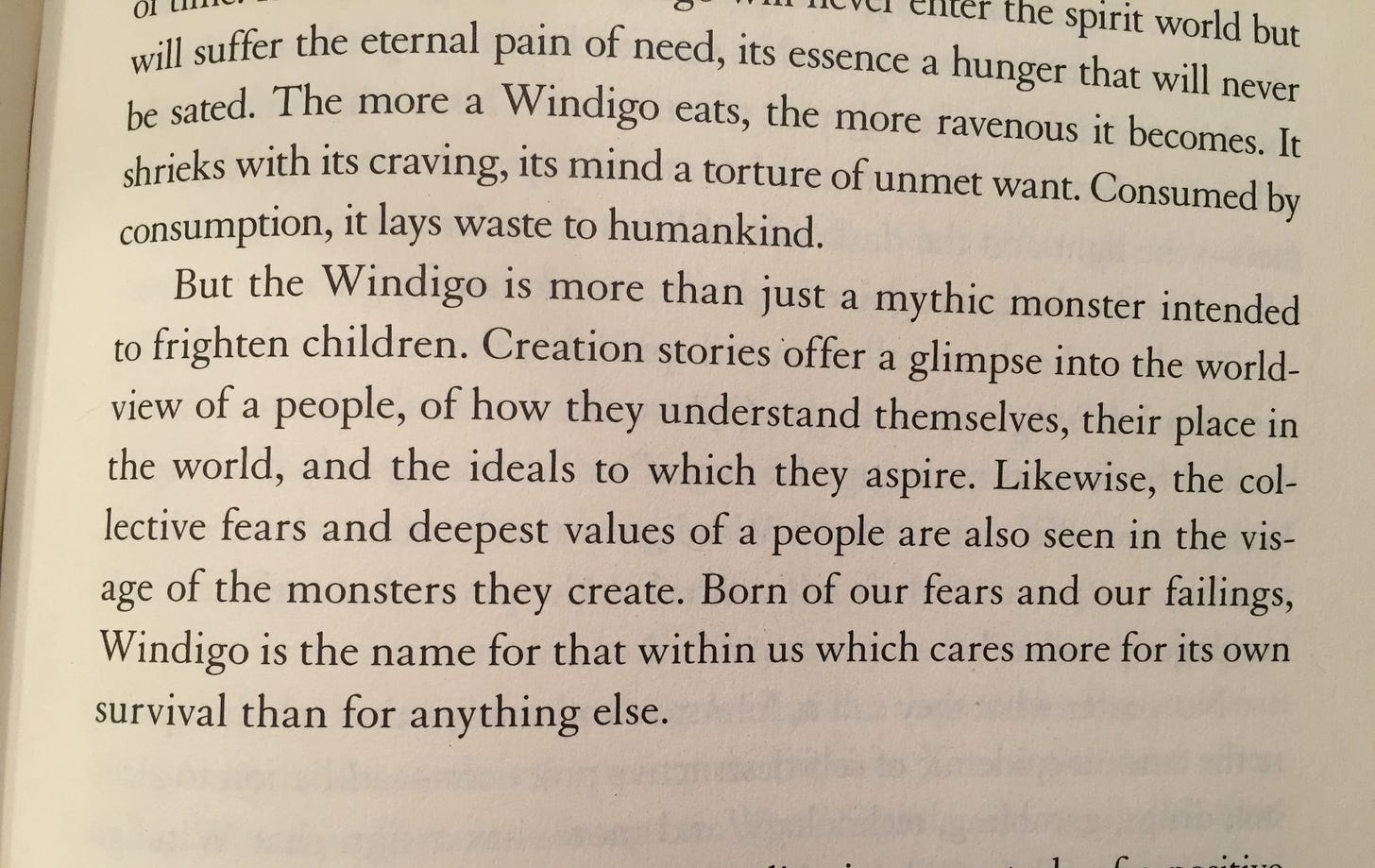
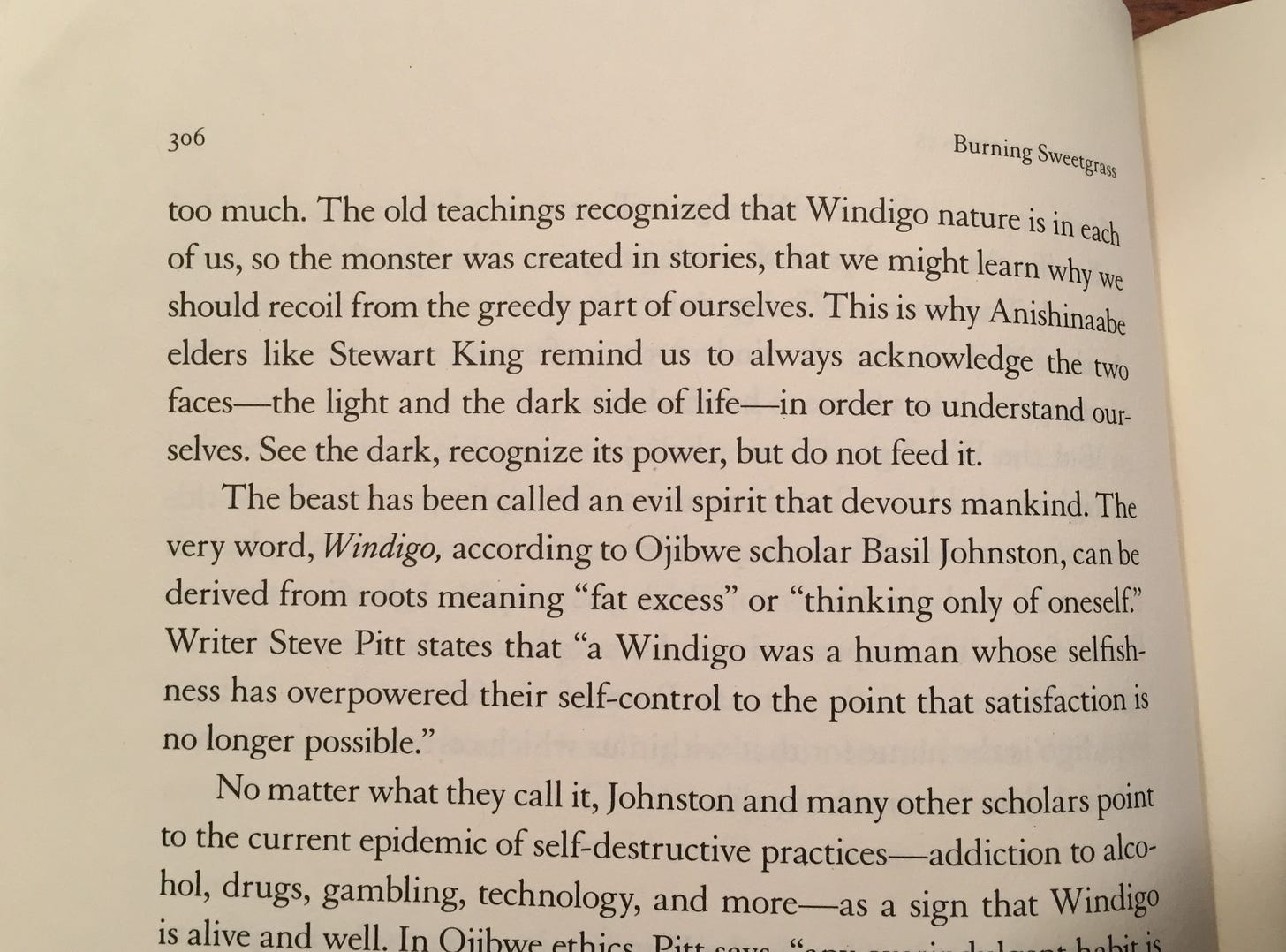
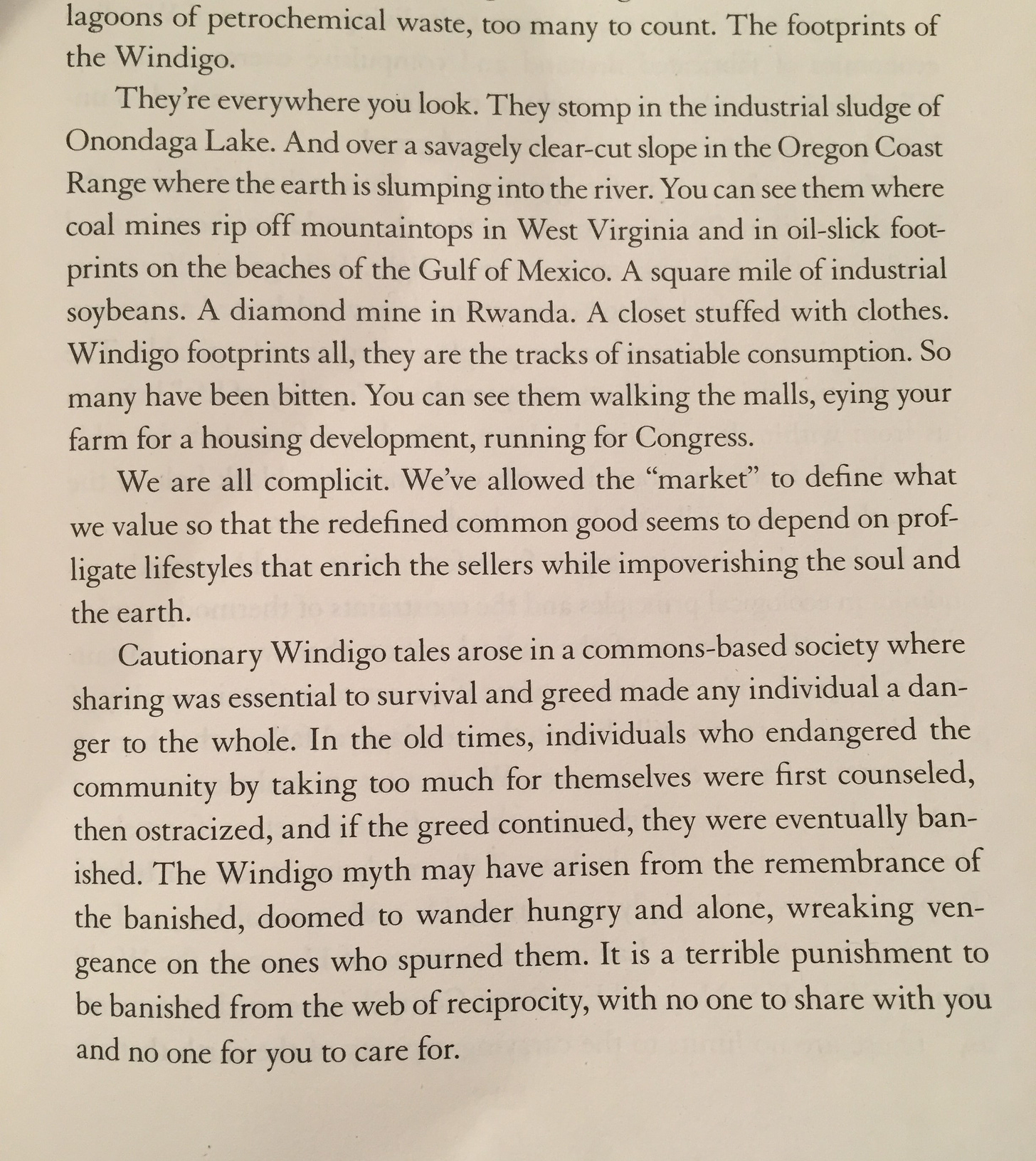
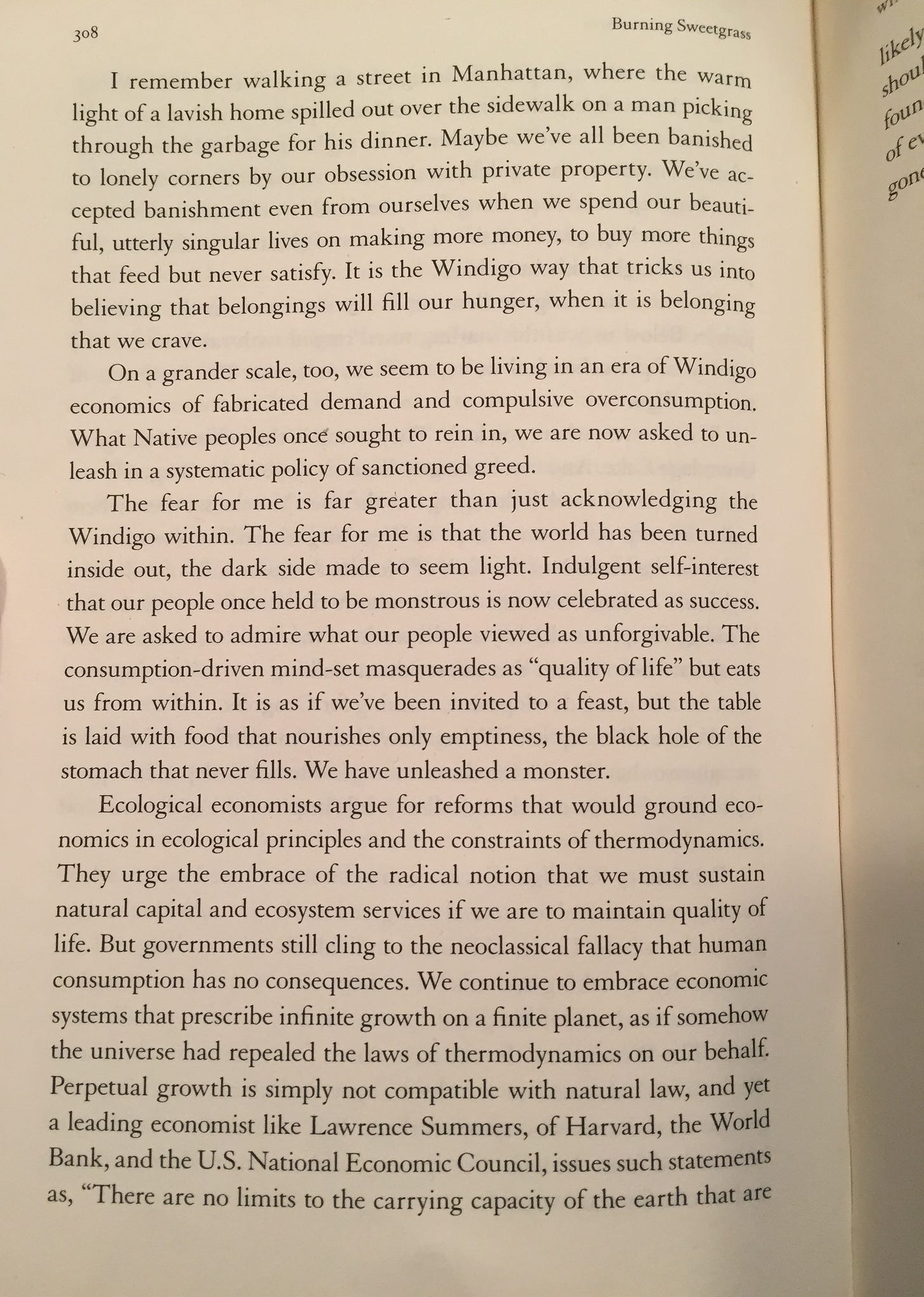
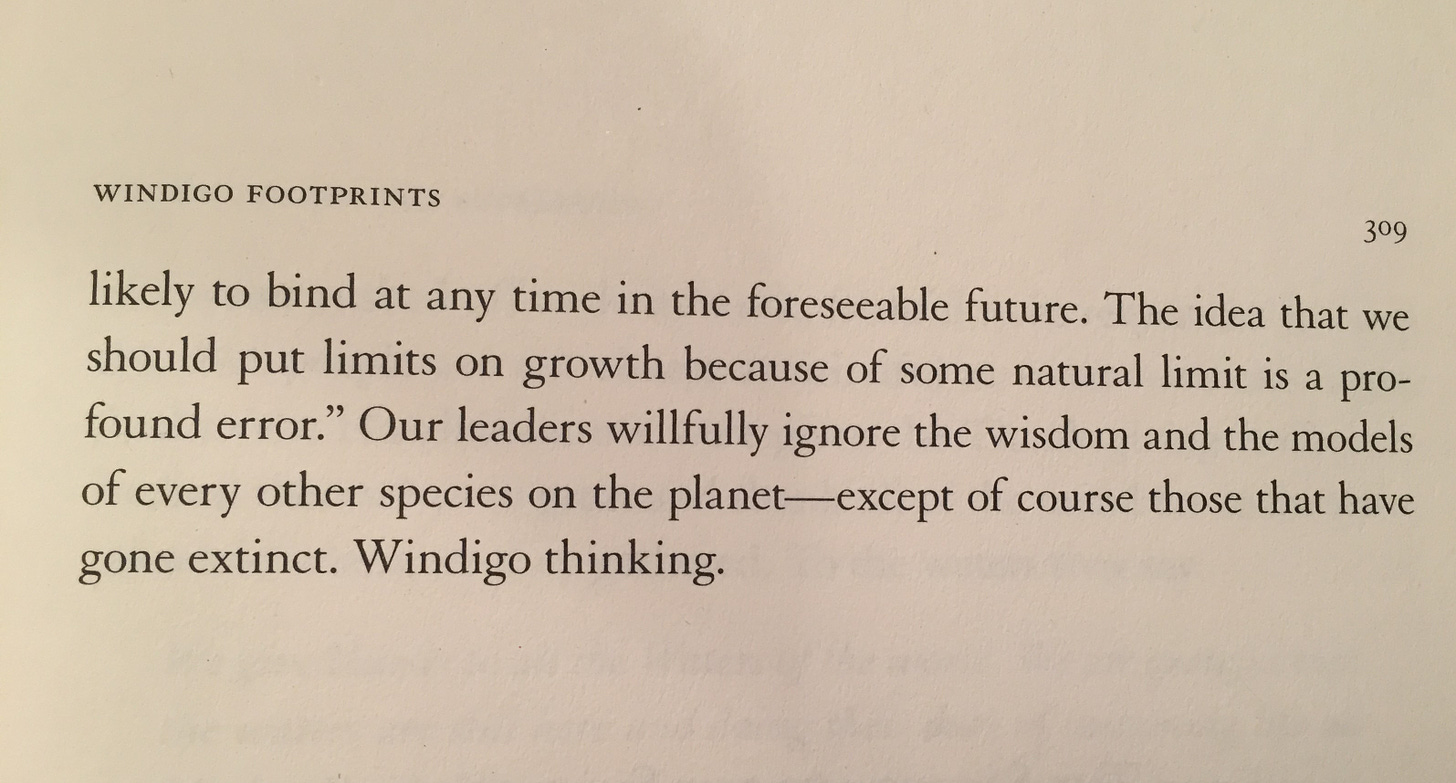

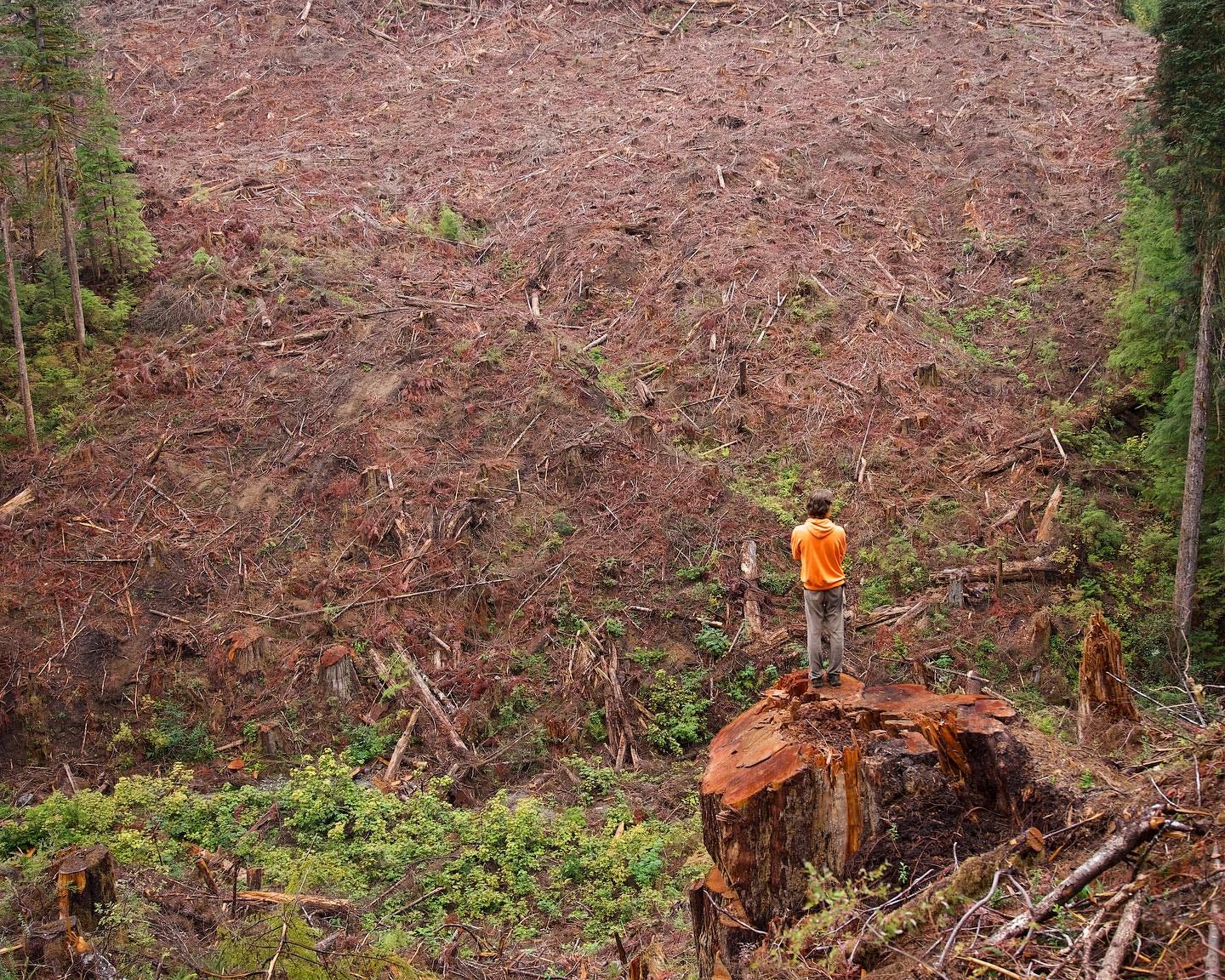
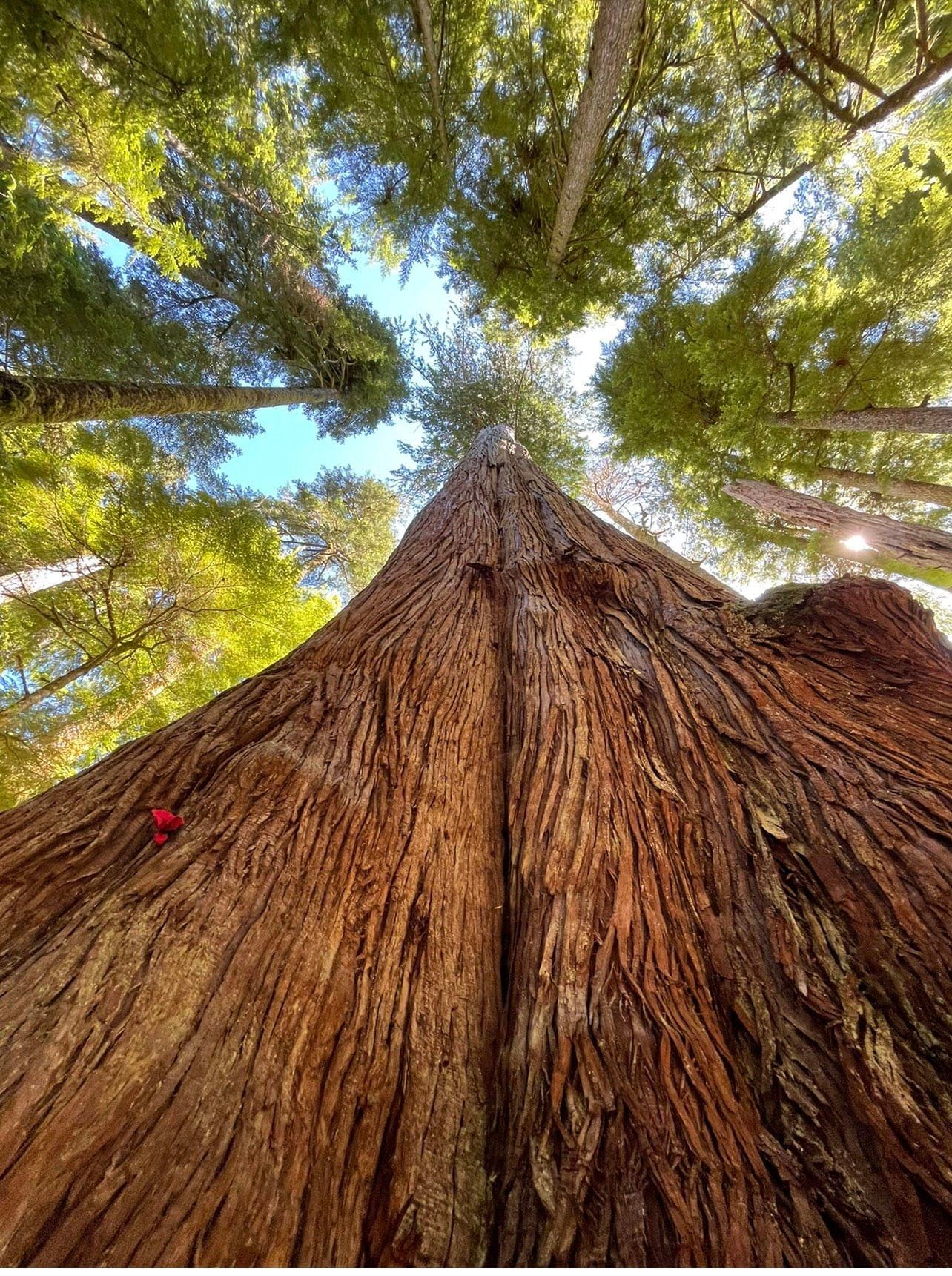

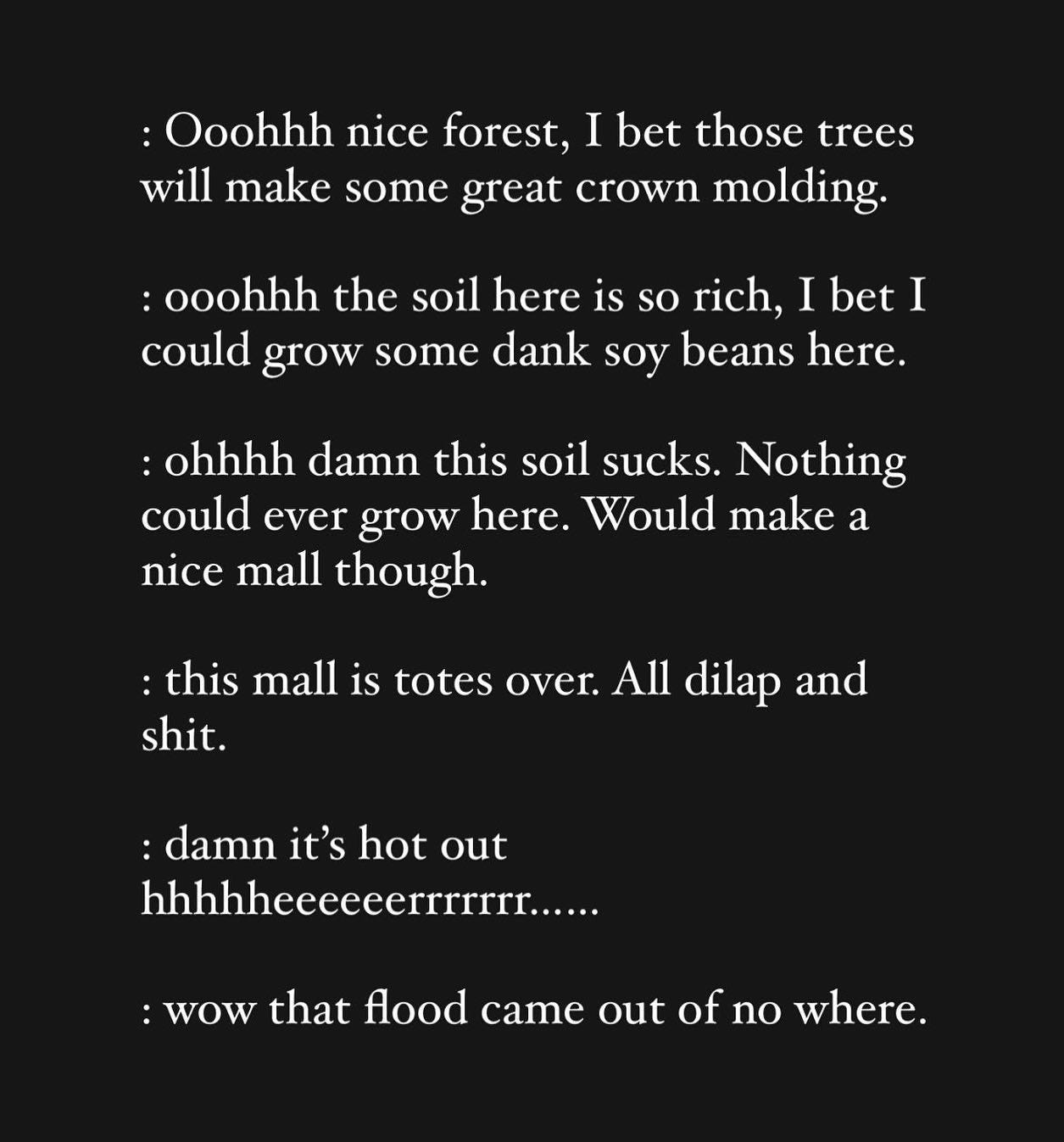
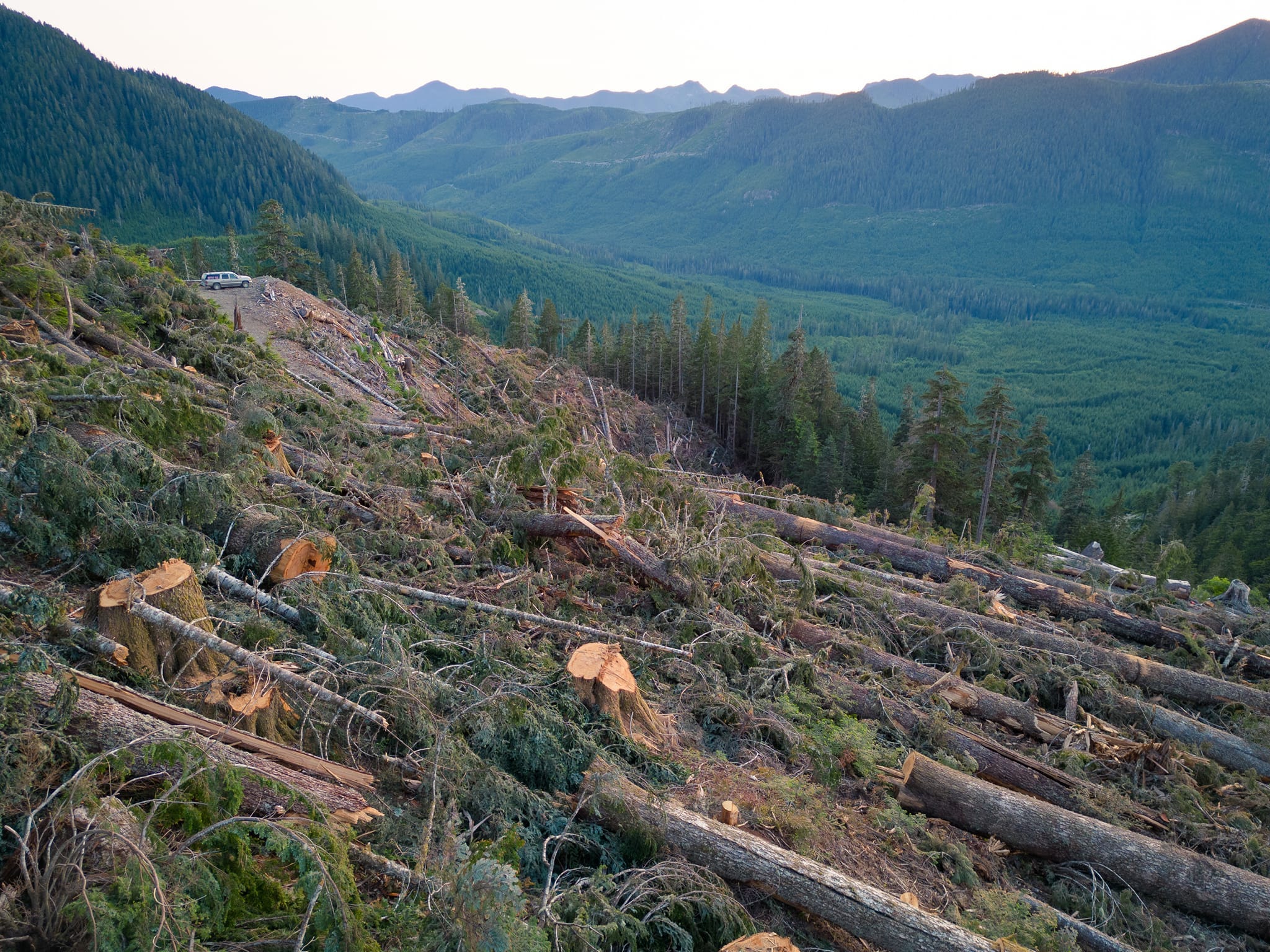
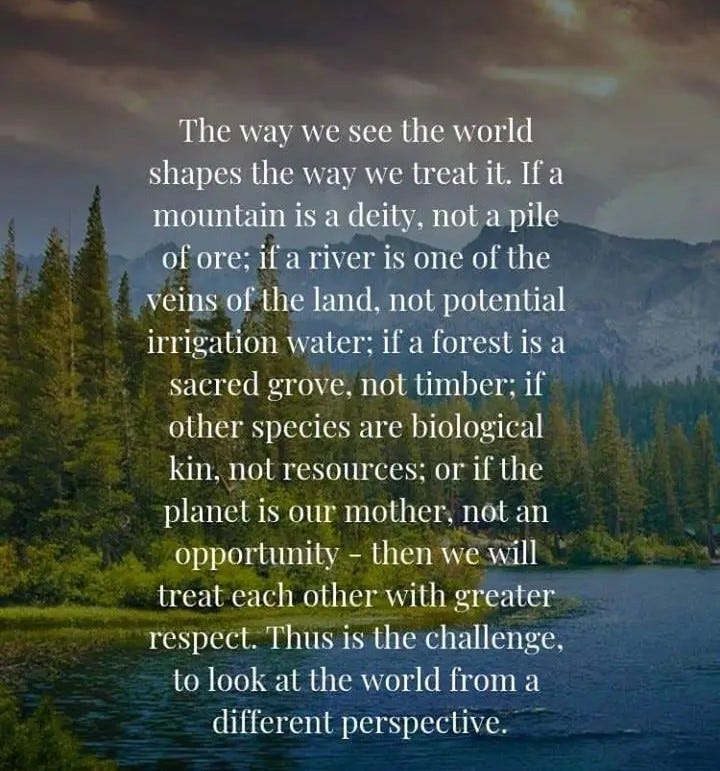
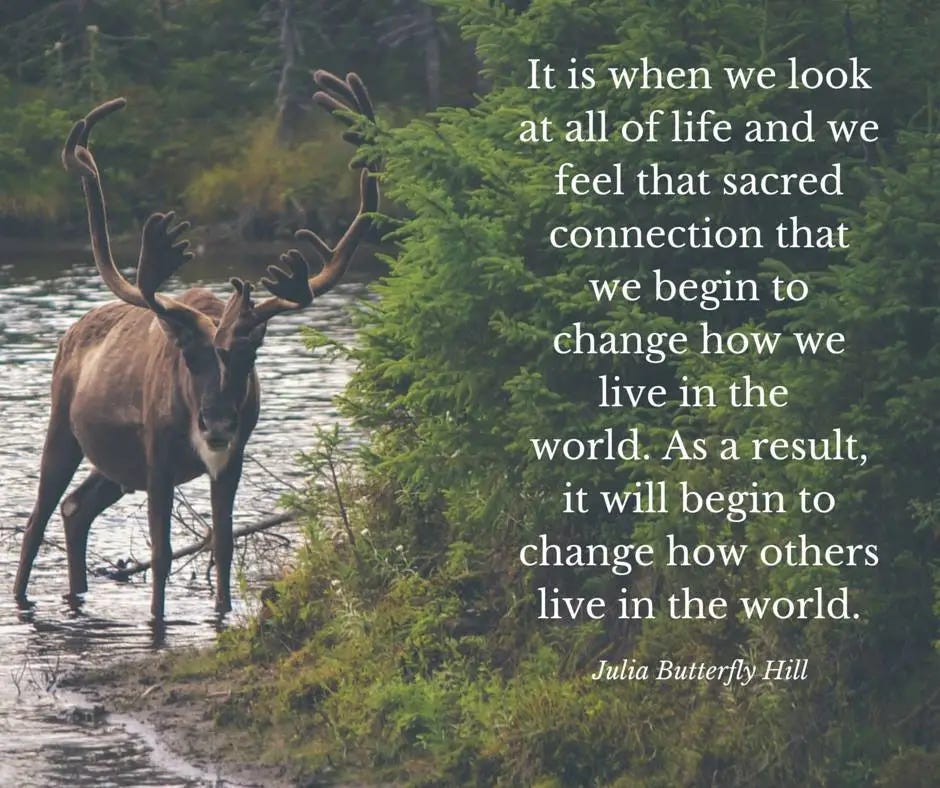
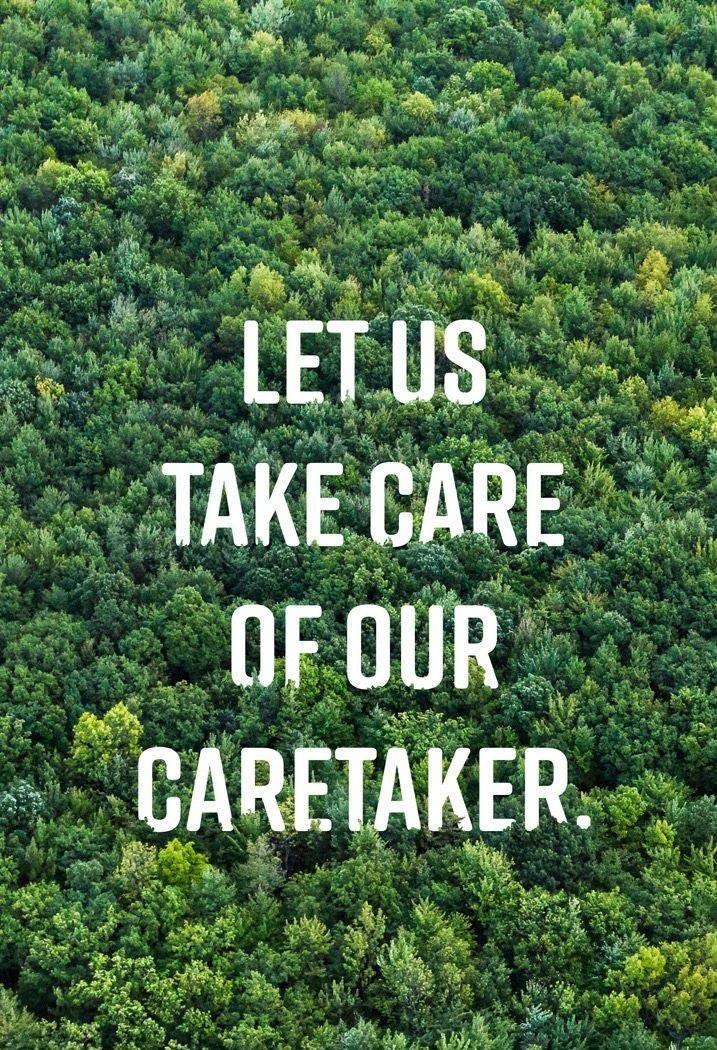
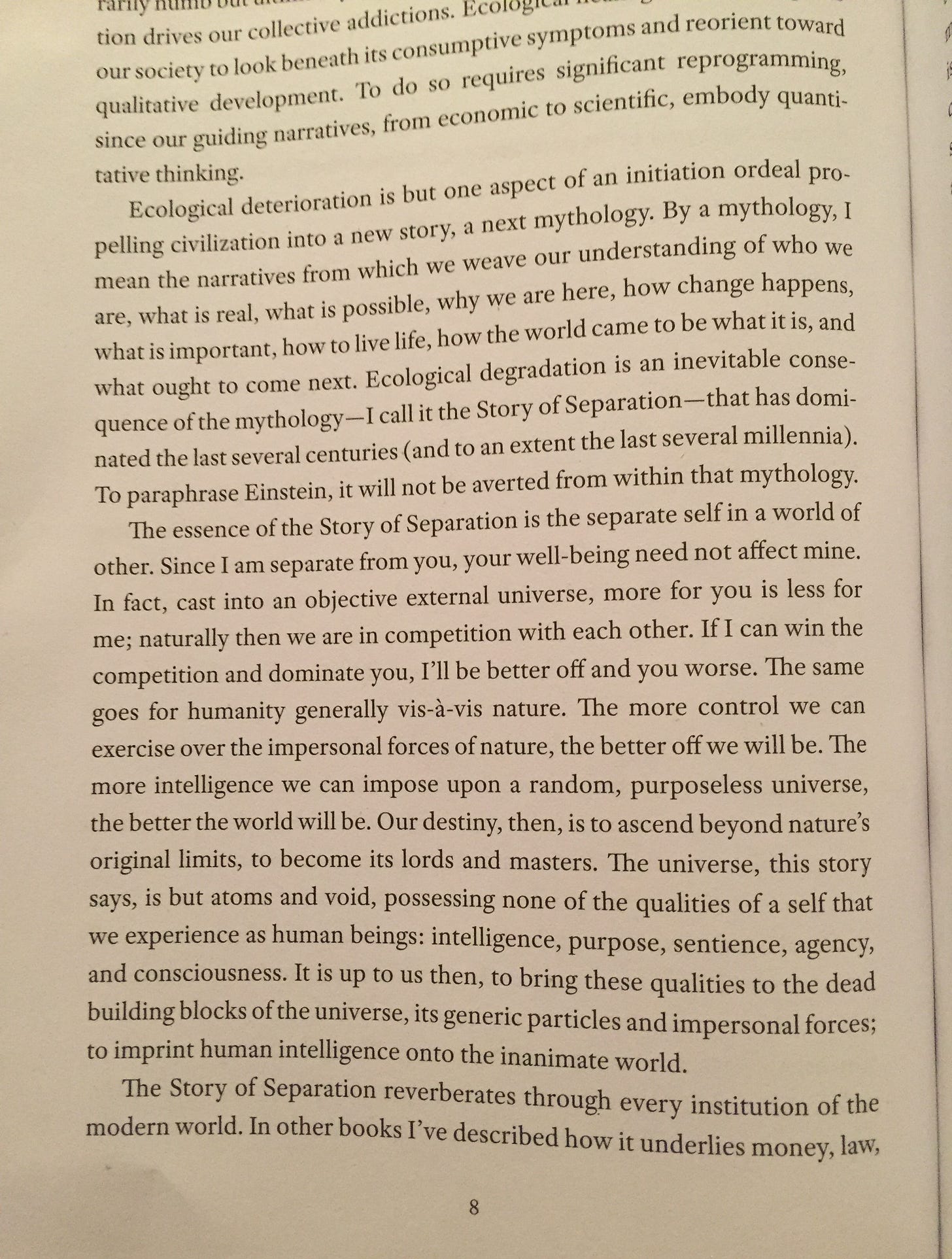
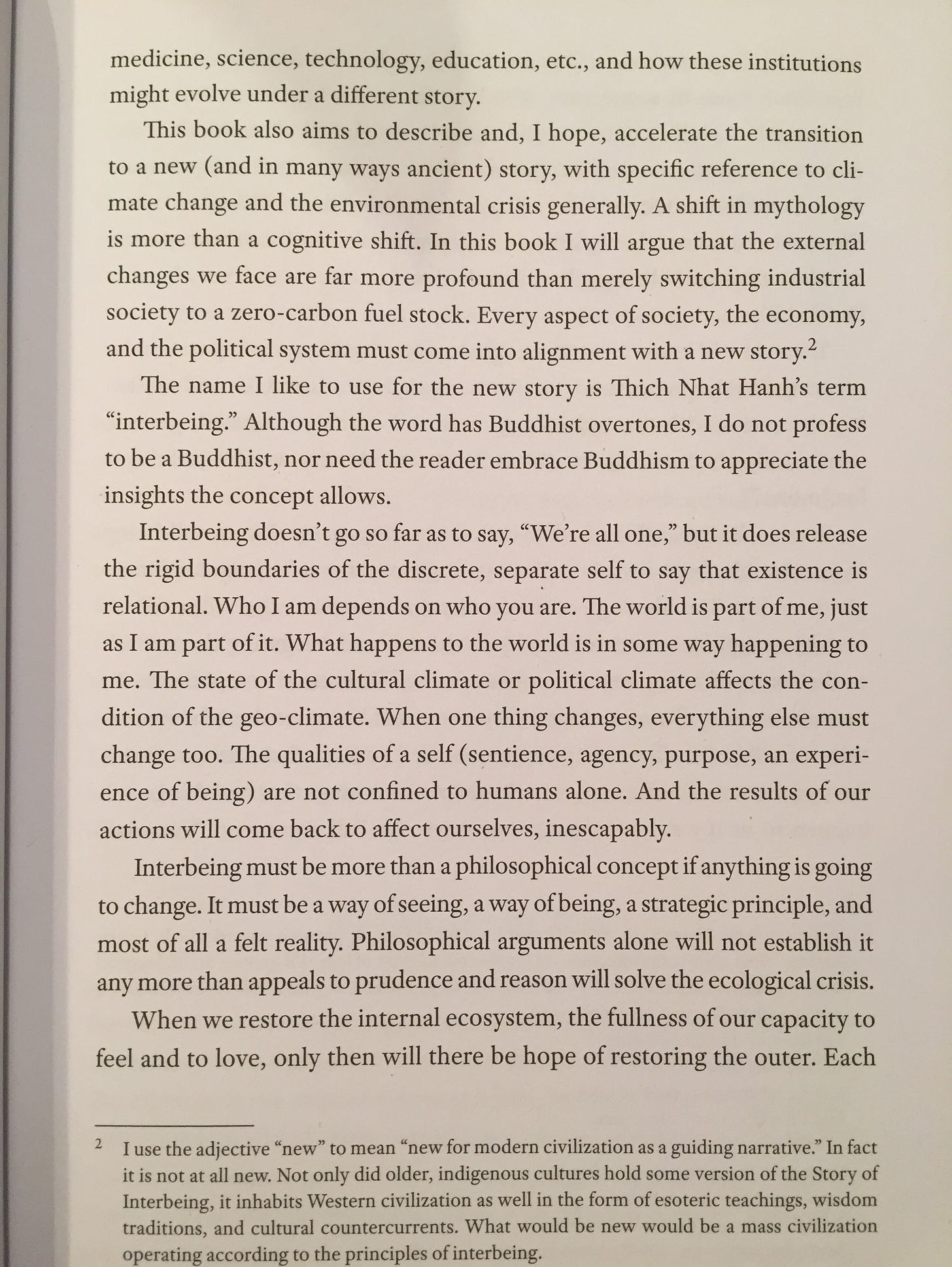
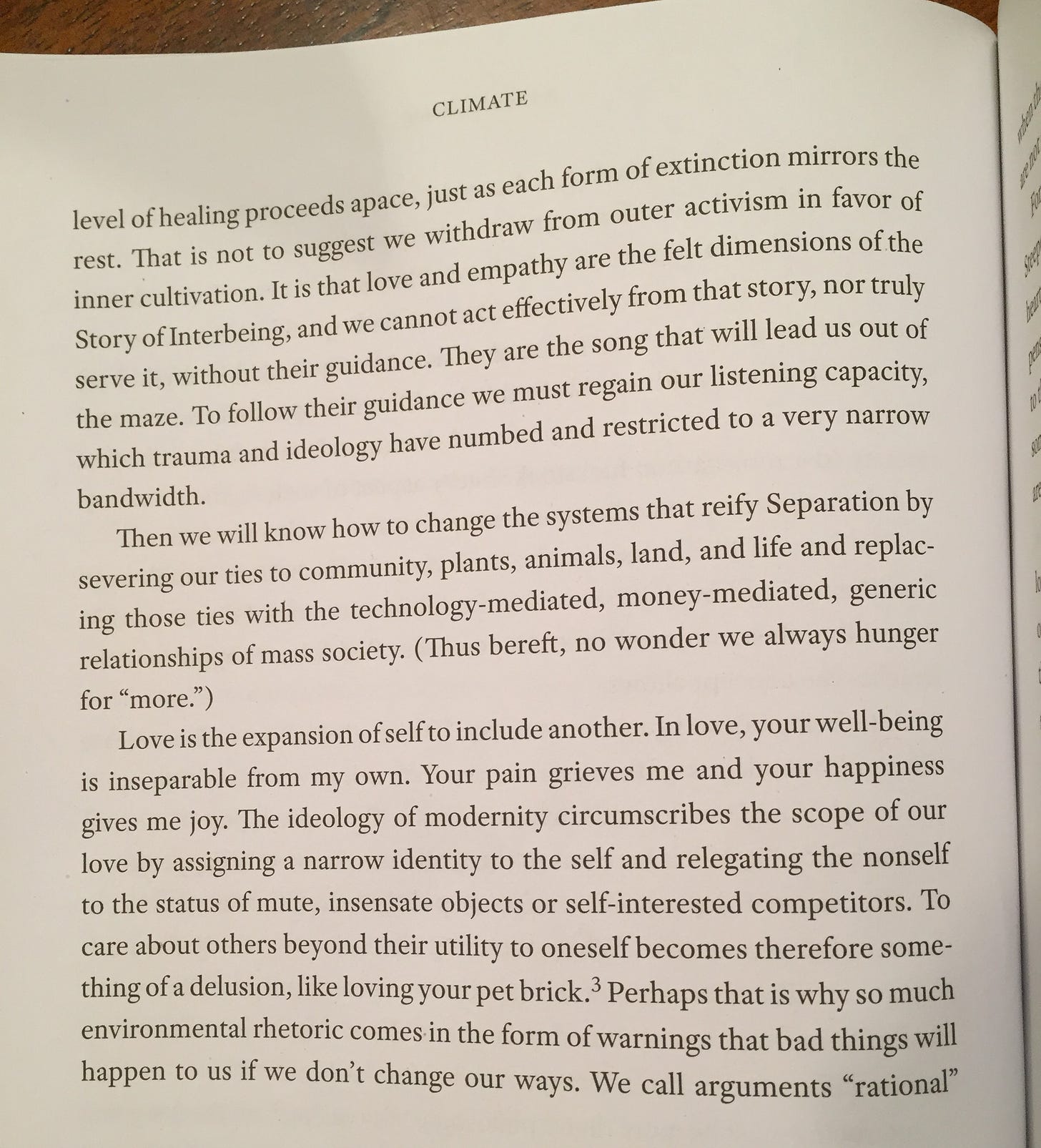
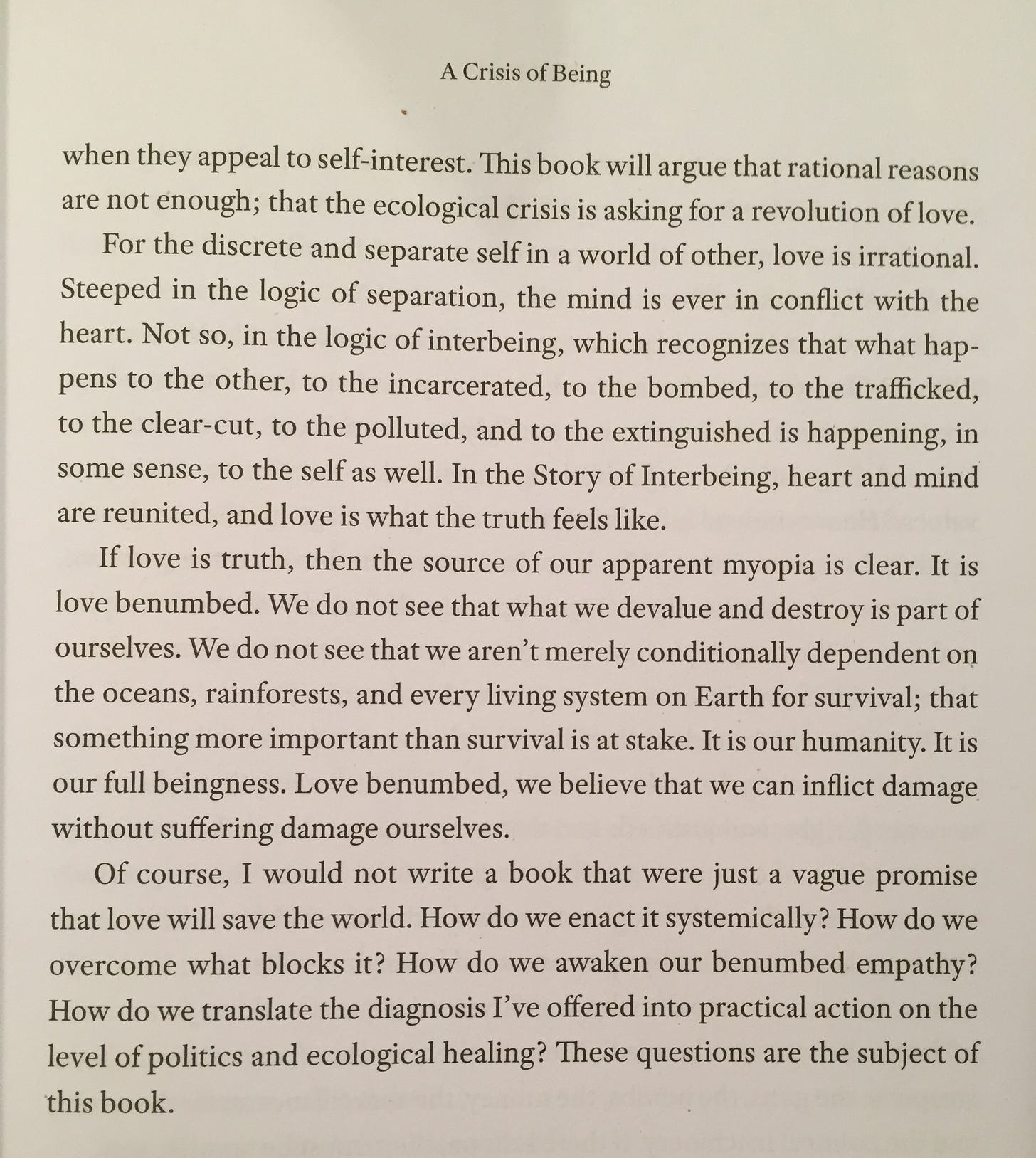

Humans, in truth, know so little about the natural world we live in. How can anyone decide that it is not an issue to clear-cut forested mountain sides of BC or to deforest in South America and Canada (to name just two). How do we know what the results will be? After all, it was only "two decades ago, while researching her doctoral thesis, ecologist Suzanne Simard discovered that trees communicate their needs and send each other nutrients via a network of latticed fungi buried in the soil — in other words, she found, they “talk” to each other. " While, that is important, there is so much more to learn about trees. We have only begun to understand.
Perhaps i have this perspective bcuz i believe that we are only a small part of this planet and that if every human were gone from this planet the natural world would not only survive, it would thrive. It doesn't need humanity but humanity does need it. This is something i have always known. Just recently, i put that into words for the first time when i was asked if i consider myself an environmentalist and if i do, what the catalyst would have been. My response was there wasn't a catalyst. I always knew that all beings were created by God with Mother Earth and as such just by being, they deserve as much respect, kindness and compassion as any human. To me, those who see humans as superior beings with the right to do as they please with regards other life on the planet have not, yet taken off their blinders and therefore have yet to see the truth of the earth and the universe. This planet is not a human's playground and it is not "ours to do with as we wish" without natural consequences.
As an example of the perspective that speaks to the self-importance and superiority complex of some humans one has simply to look at one of Elizabeth Nickson's comments in which she says, "Like thousands in BC, Gavin, I own 20,000 trees, and more than two dozen old growth." This makes me wonder how someone owns a being that was here before she even took her first breath. Is that not arrogance? Just bcuz the being is not human doesn't give us the right to ownership. Stewardship? Yes! Ownership, no!
If we are to care about the future of this planet, should we not be developing a relationship with the trees (and in fact all beings) that is symbiotic where both parties involved benefit from the interaction rather than the parasitic relationship that is more often now engaged in where one party benefits while the other is harmed?
I believe that trees bring so much more to this world than most can even imagine. If one has ever been in a forest and has taken the time to be present, it would not be long before one would realize the impact trees have on us. They calm us and lift our spirits at the same time. How does a being that not only helps us to rebalance ourselves with their energy, but is greatly responsible for our ability to take our next breath, not deserve our respect, kindness and compassion? ❤
Interesting, Gavin. I thought about doing a post on Elizabeth Nickson based on her very pro-Israel writings. She had subbed me and I subbed her back, intrigued by her stance for local sovereignty. She posted a comment on one of my pedo-sadist episodes, asking what I thought about someone speaking out, who she thought was a fake. I bought her book, The Monkey-Puzzle Tree, about her mother being a victim of the CIA psychological torture program. It was well-written and horrifying.
It's curious that her Substack description says "A political shift similar to the Glorious Revolution is underway and I am here for it." A Reddit discussion asks, "Should the Glorious Revolution be seen more as a Dutch invasion or an English coup d’etat?"
I think this is the last one before I unsubbed: https://elizabethnickson.substack.com/p/obama-inc-is-running-out-of-brown [people to kill]. From her perspective, Oct 7th was planned by Obama, Inc, because "he hates Israel" and needs a war to win the next election: "a color revolution to take down Bibi, and break Israel’s legerdemain in science, business and near everything else. Swamp the country with guilt and brutalize its people." I don't think I need to editorialize that. This was on Oct 28.
Elizabeth begins by saying how she was raised with "a reverence for Jewish people because my father had been put in charge of a concentration camp – “a work camp, not a death camp”, he would say – after the war." When he would say, "I saw things ..." and trail off, Elizabeth inserts a photo of a pit filled with naked, emaciated dead bodies to show us what he 'probably' saw.
This is my comment, which no one responded to: "First, I can't put your book down, Elizabeth. I'm a little more than halfway through and it's such a well told story. Very compelling.
"Second, tell me more about your dad. My dad fought in WWII but he would have been over 100 now. I don't think your dad was lying when he called them work camps. Something happened that isn't what we've been told. I don't know what that was, but I know we haven't been told the truth.
"Speaking of which, third, there were no beheaded babies. This one of mine quotes Max Blumenthal debunking that: https://thirdparadigm.substack.com/p/profiteering-and-propaganda-israelhamas and on the old ladies as hostages, my recent one has a link to the one released who talked about how nice they were to the hostages: https://thirdparadigm.substack.com/p/authority-palestine-and-gabor-mate. The footage of kids in cages were Palestinians from 3 yrs ago, it's Israeli soldiers who are laughing at them. Vanessa Beeley has a lot of evidence on this.
"Fourth, Obama is a puppet of Israel. Operation Cast Lead, the 22 day assault killing 1400 Palestinians, happened just before he took office. He said he couldn't intervene because he wasn't yet President but that didn't stop him from bailing out the bankers. So Obama golfed while Gaza burned. And it ended on the day of his inauguration. Does that seem coincidental to you?"
This is all to say there's a consistency in Elizabeth's writing and I think you're tapping into it.